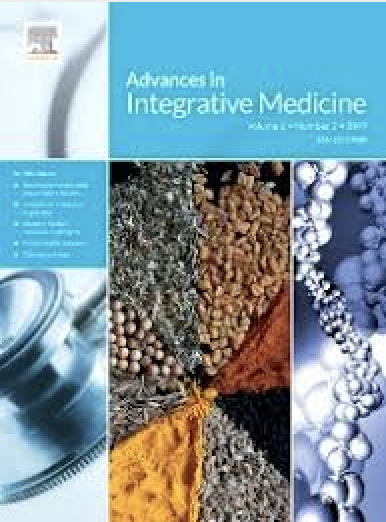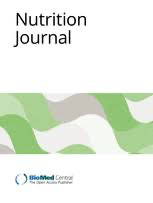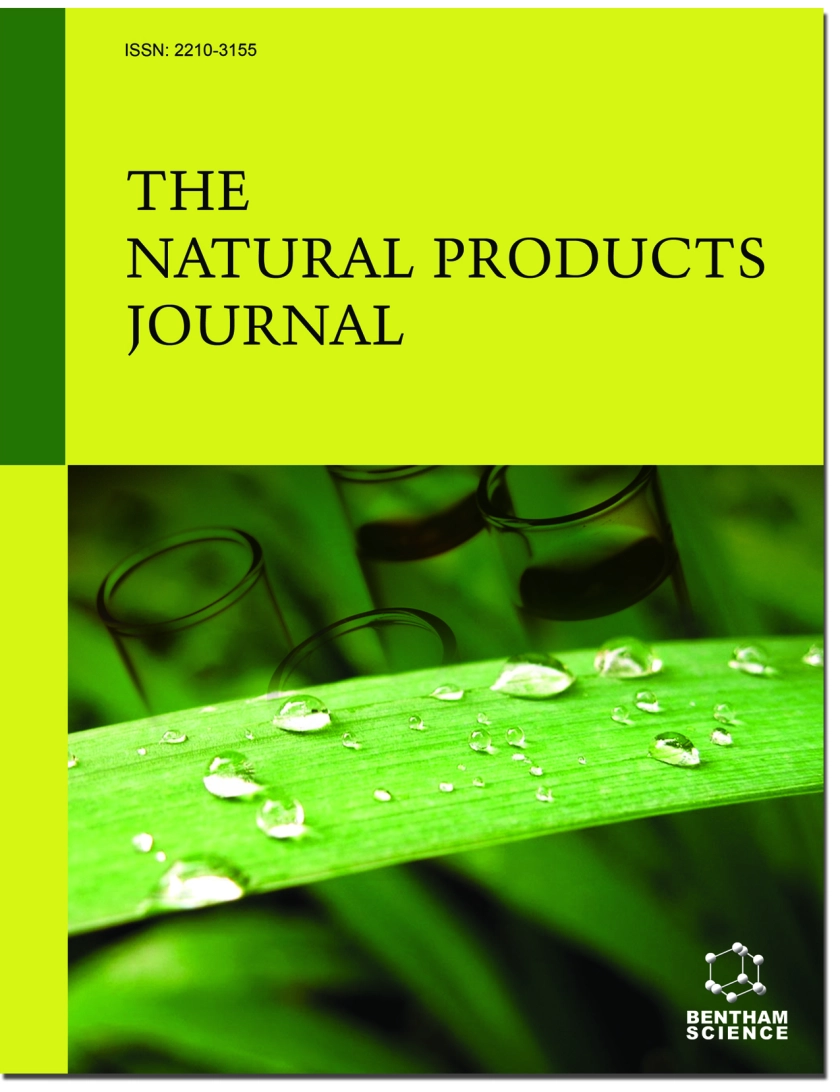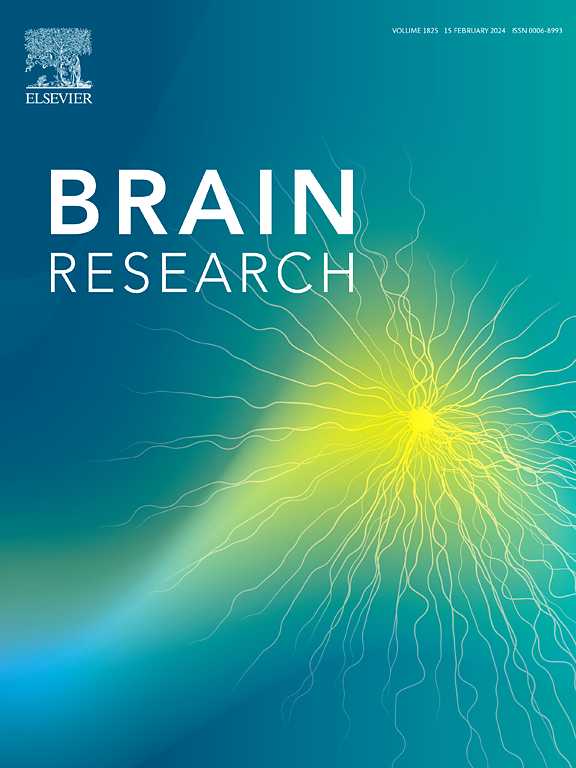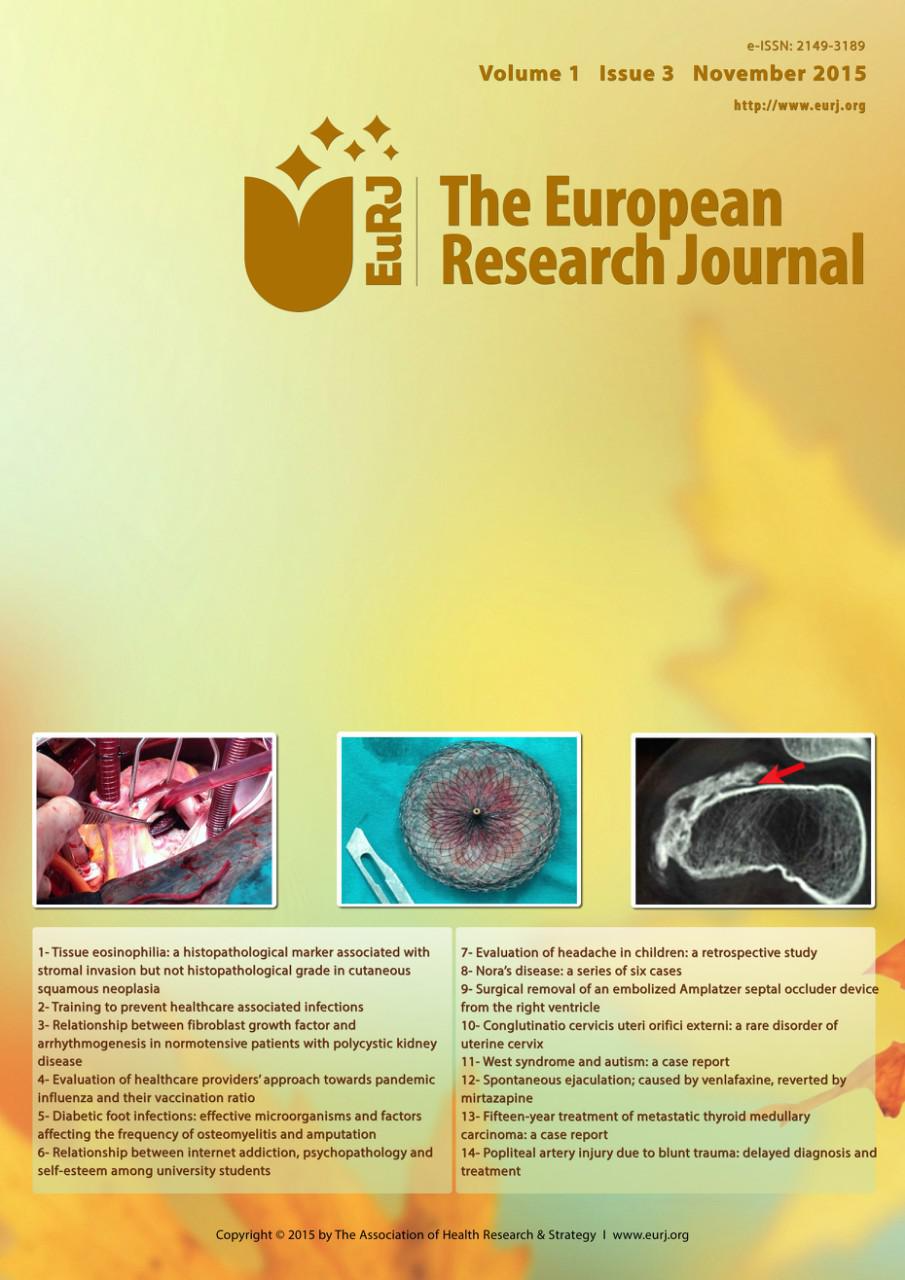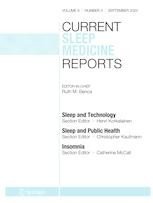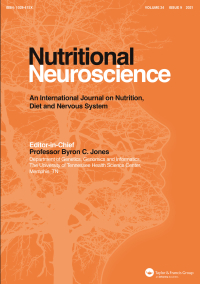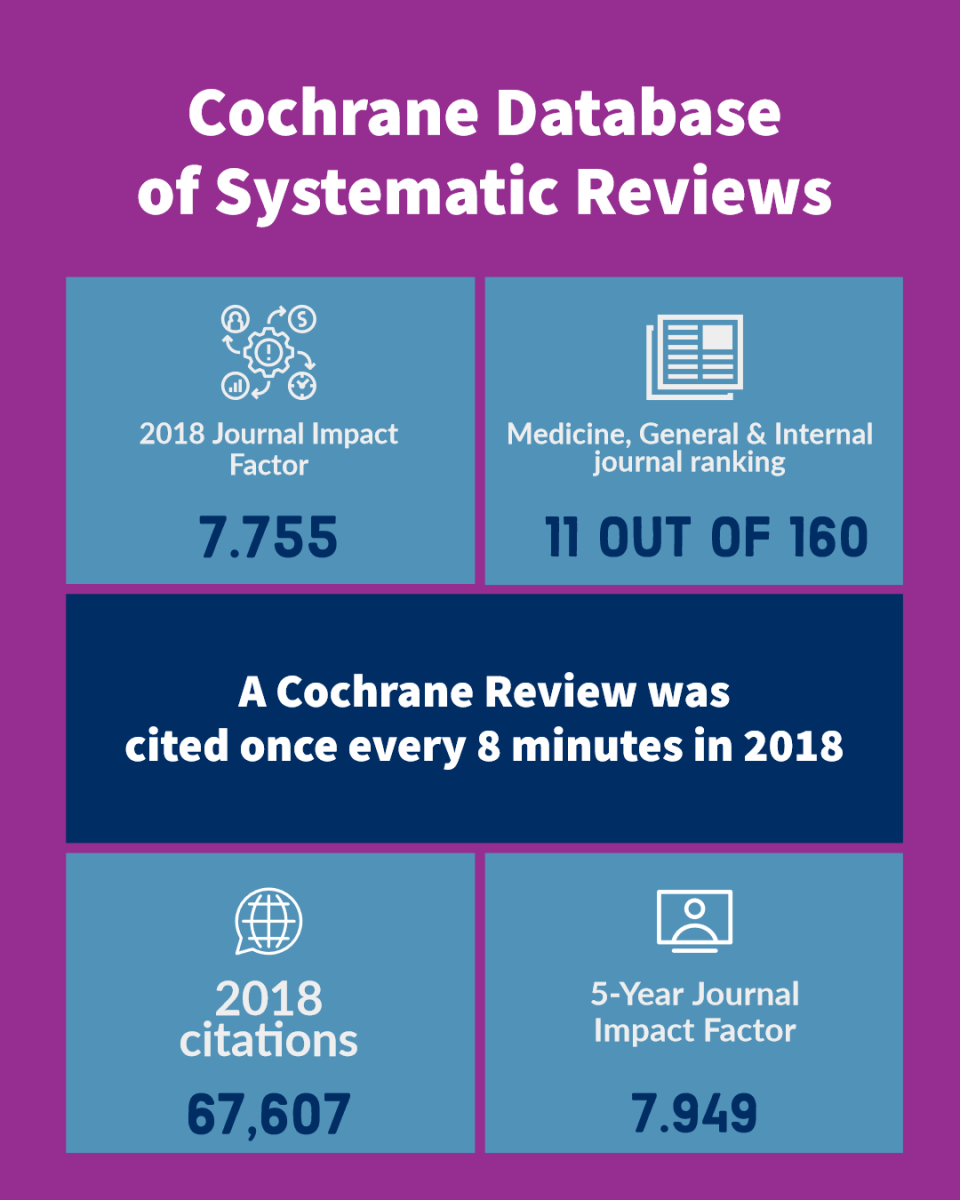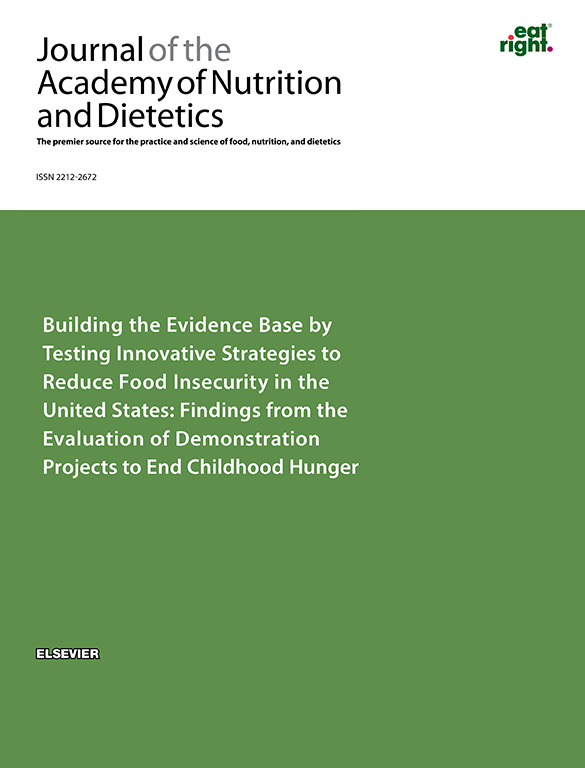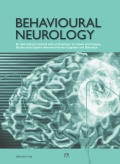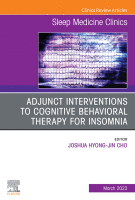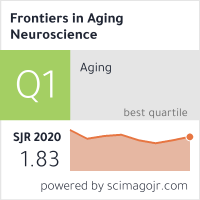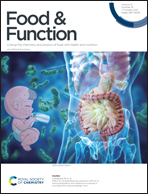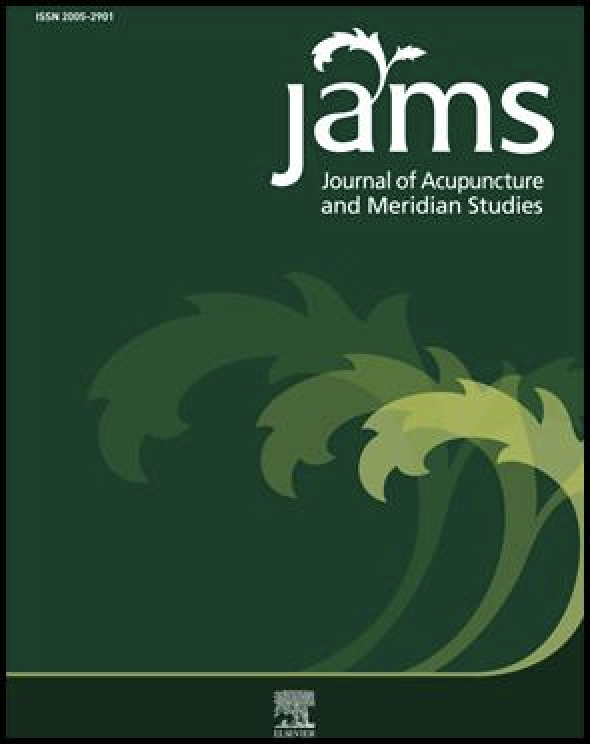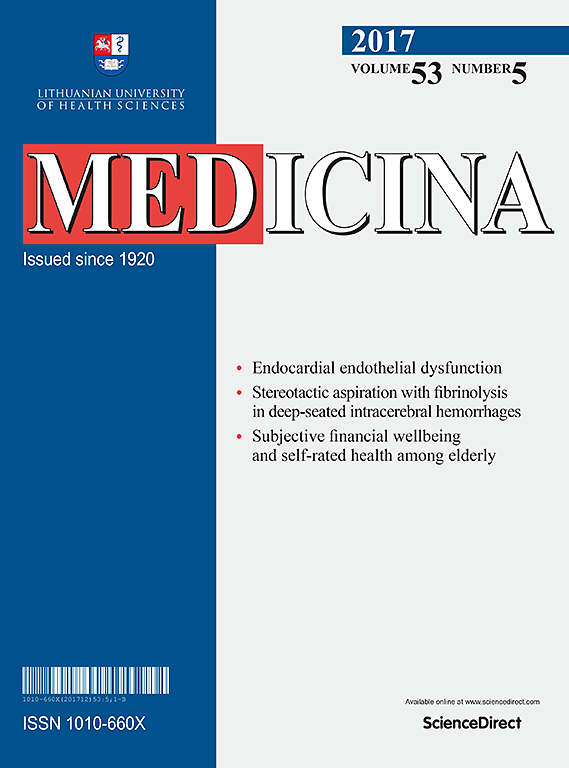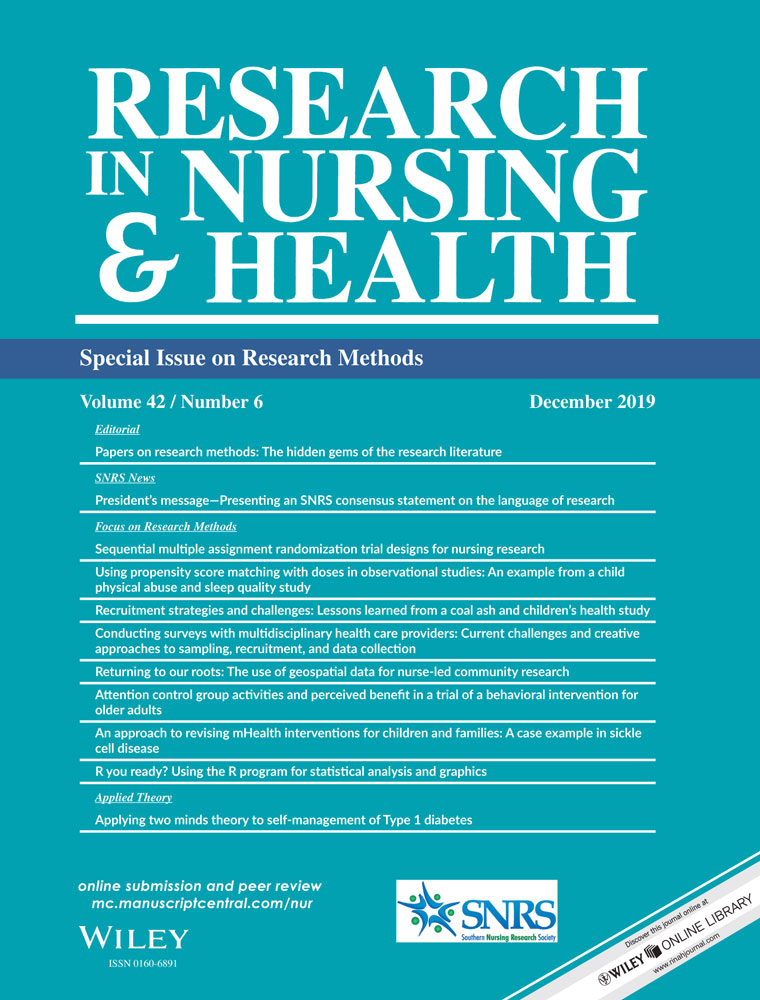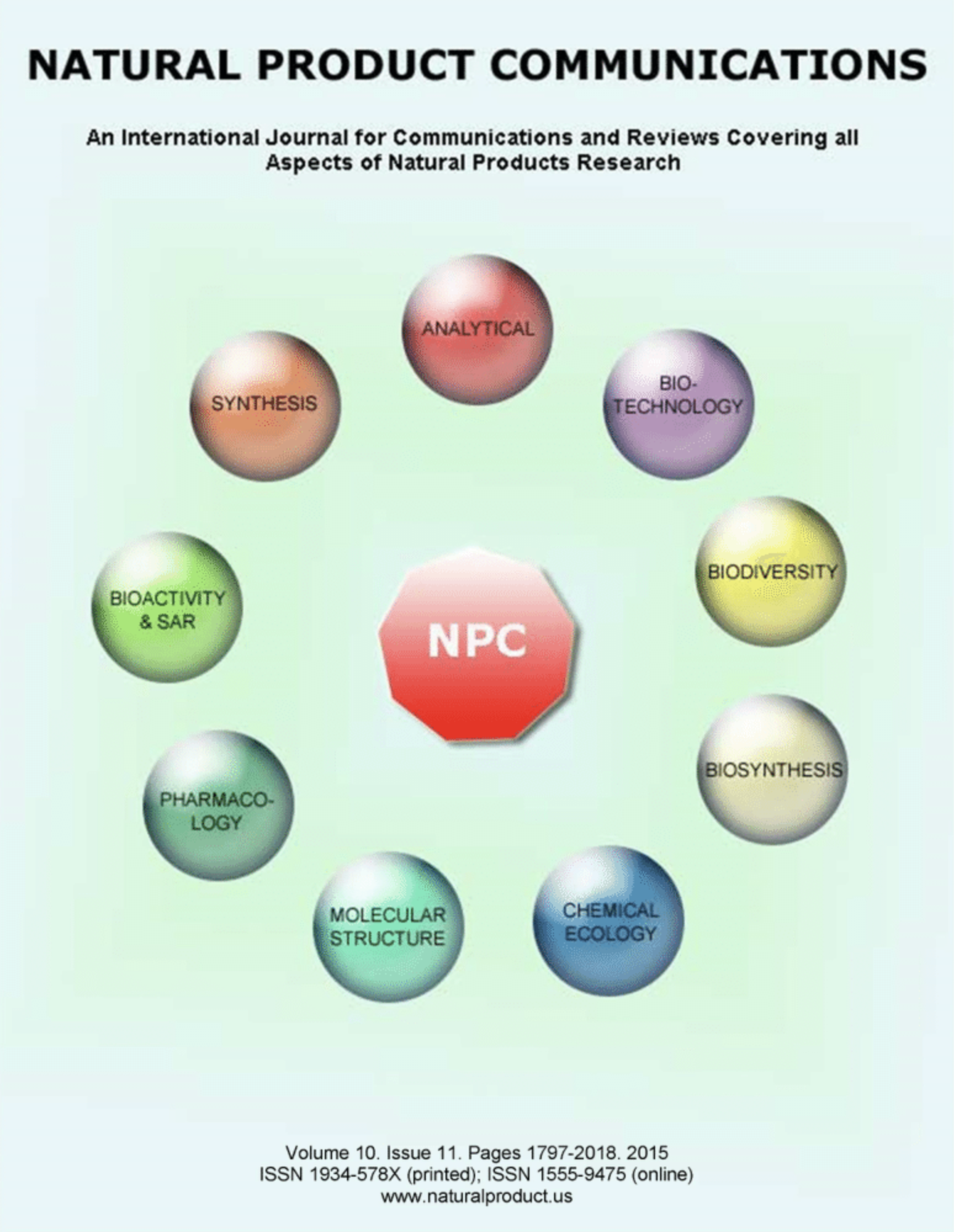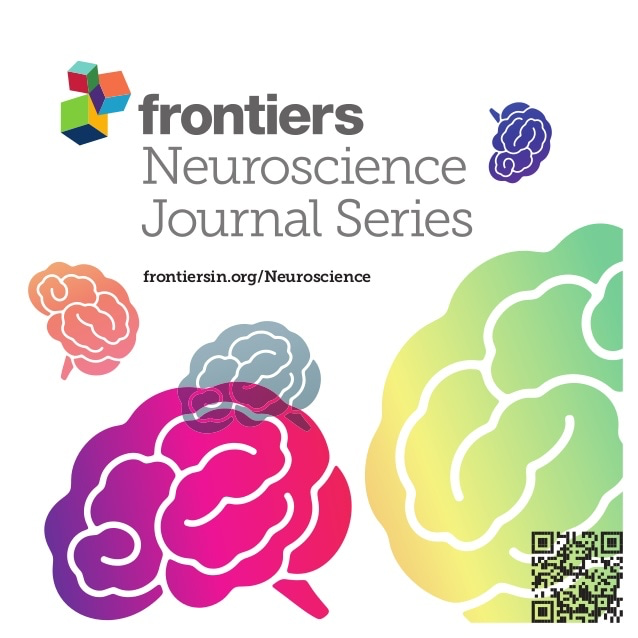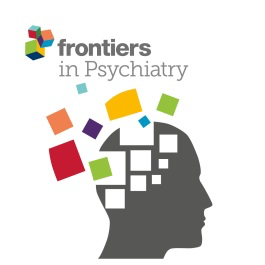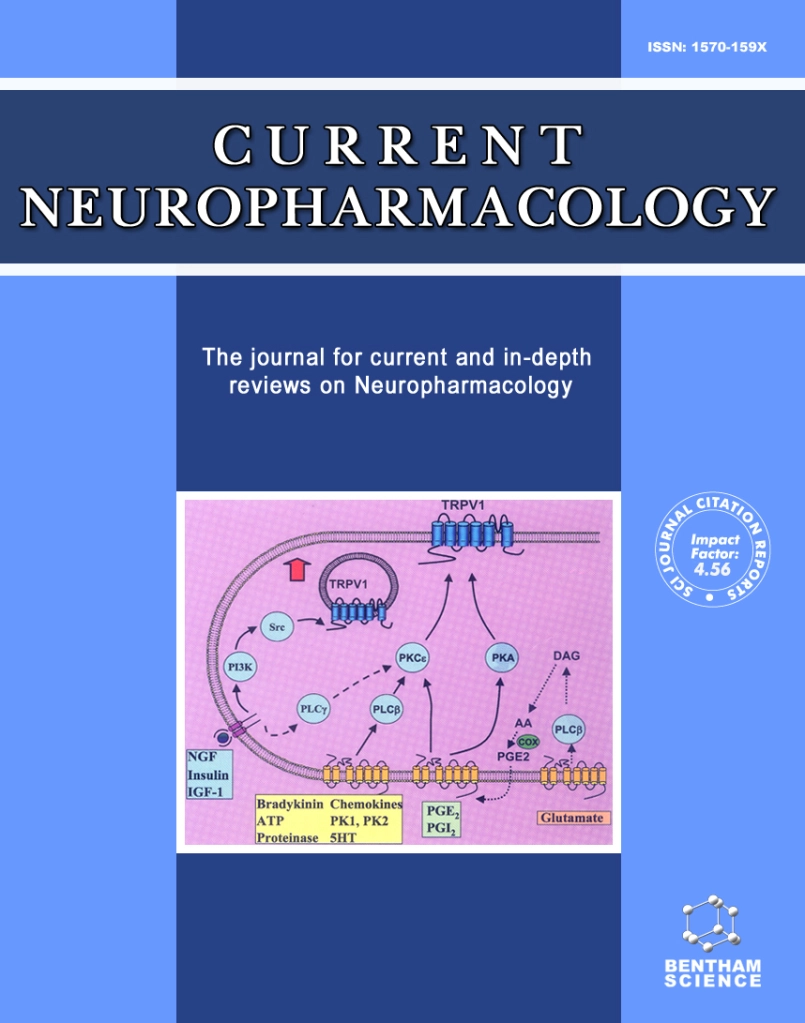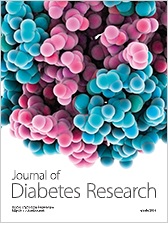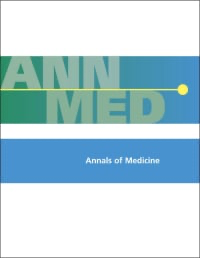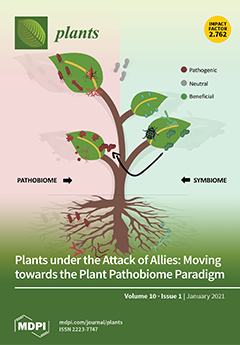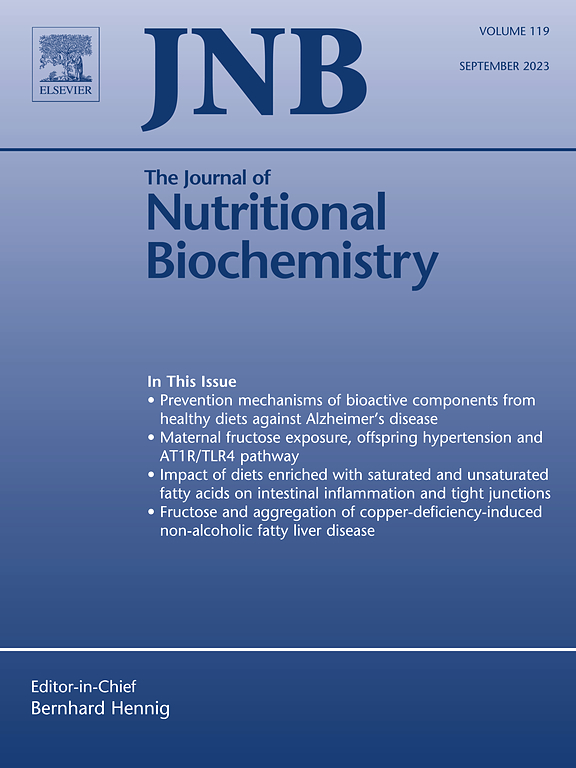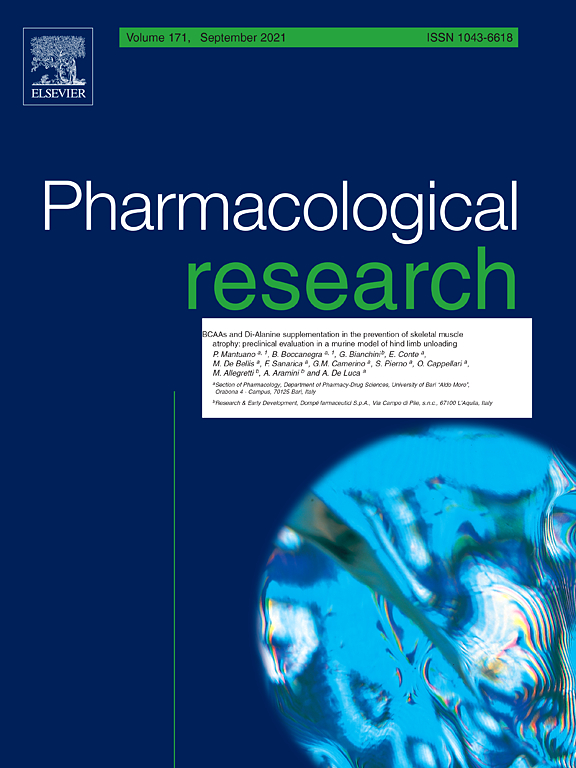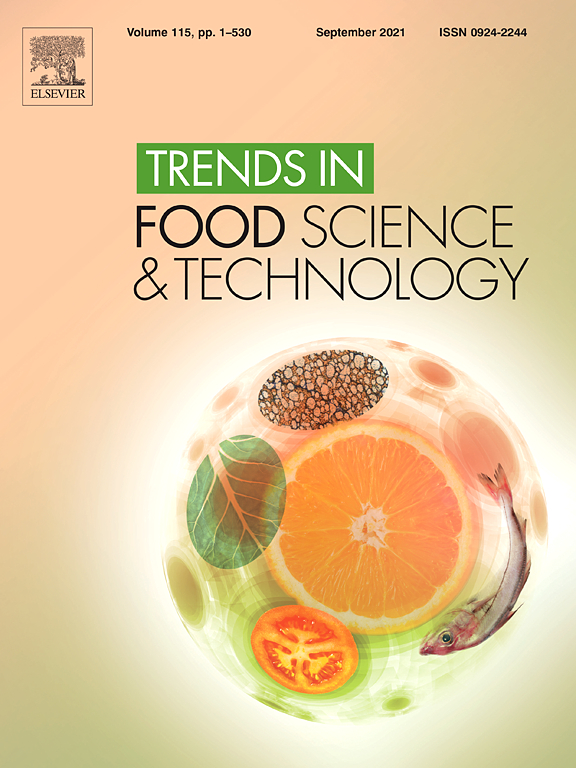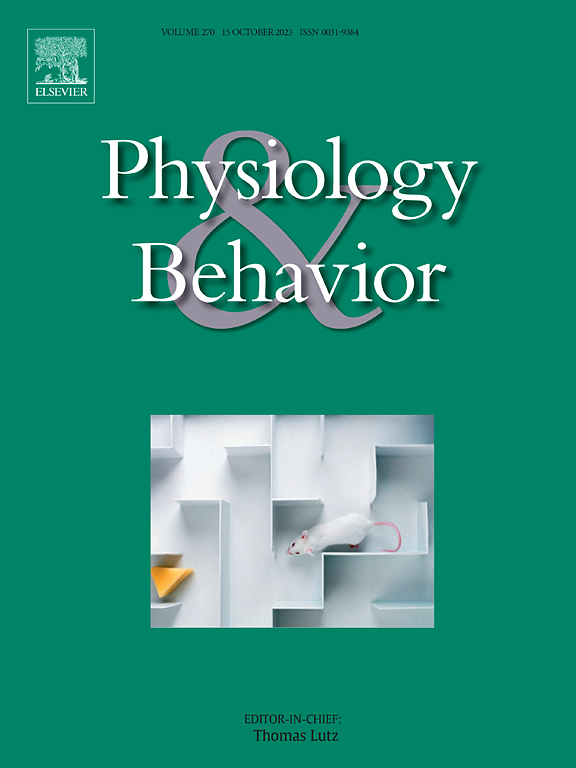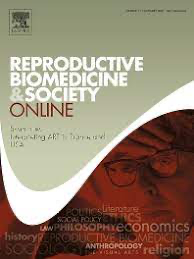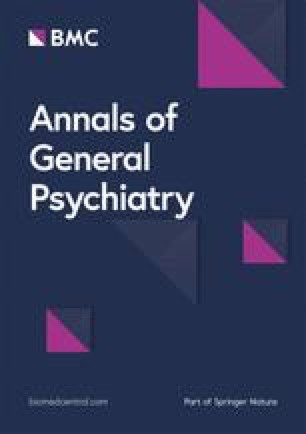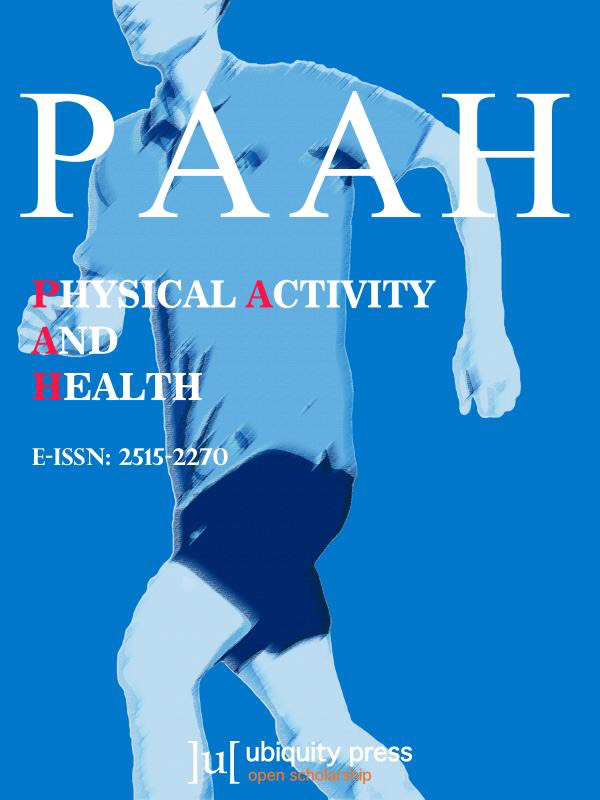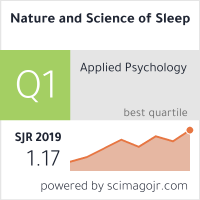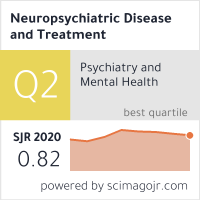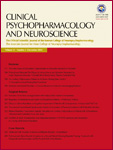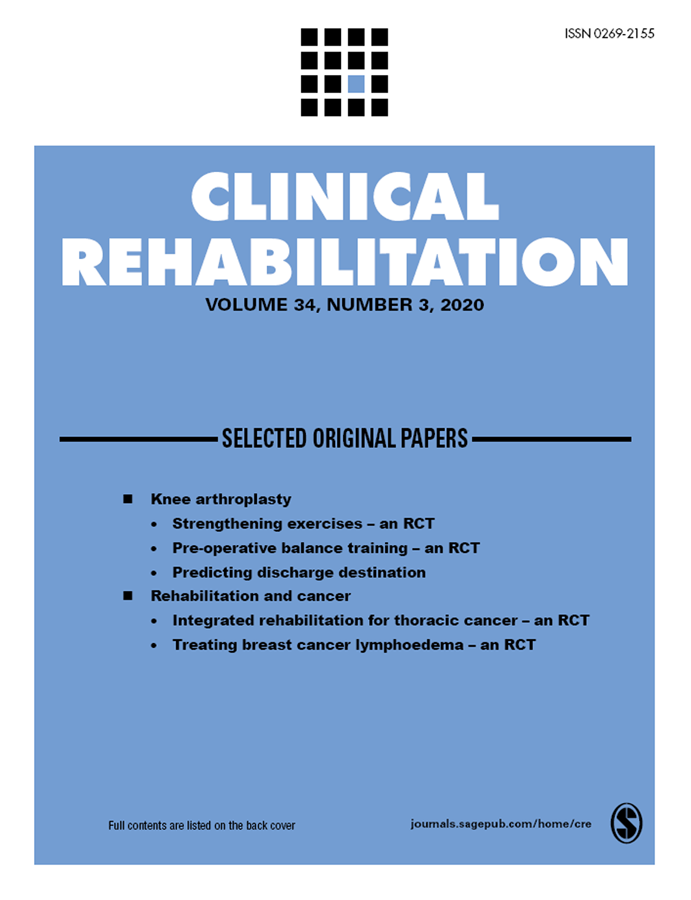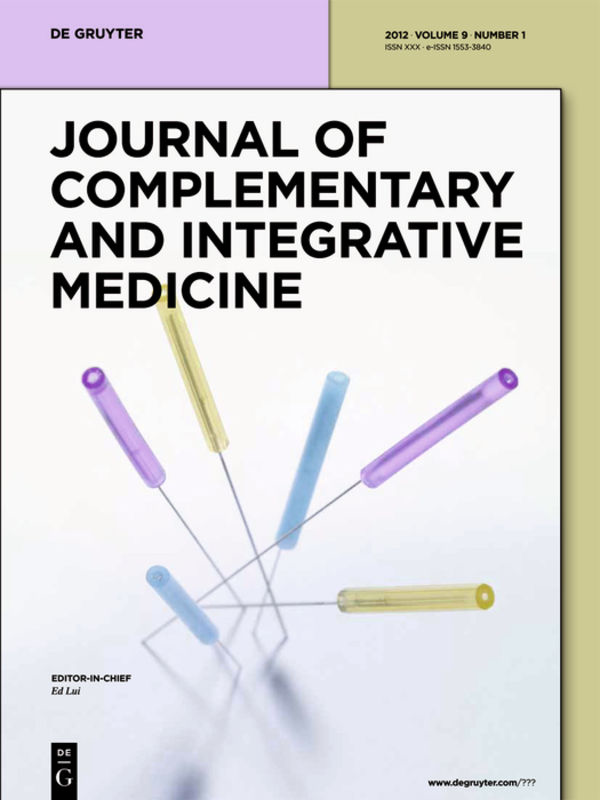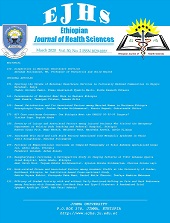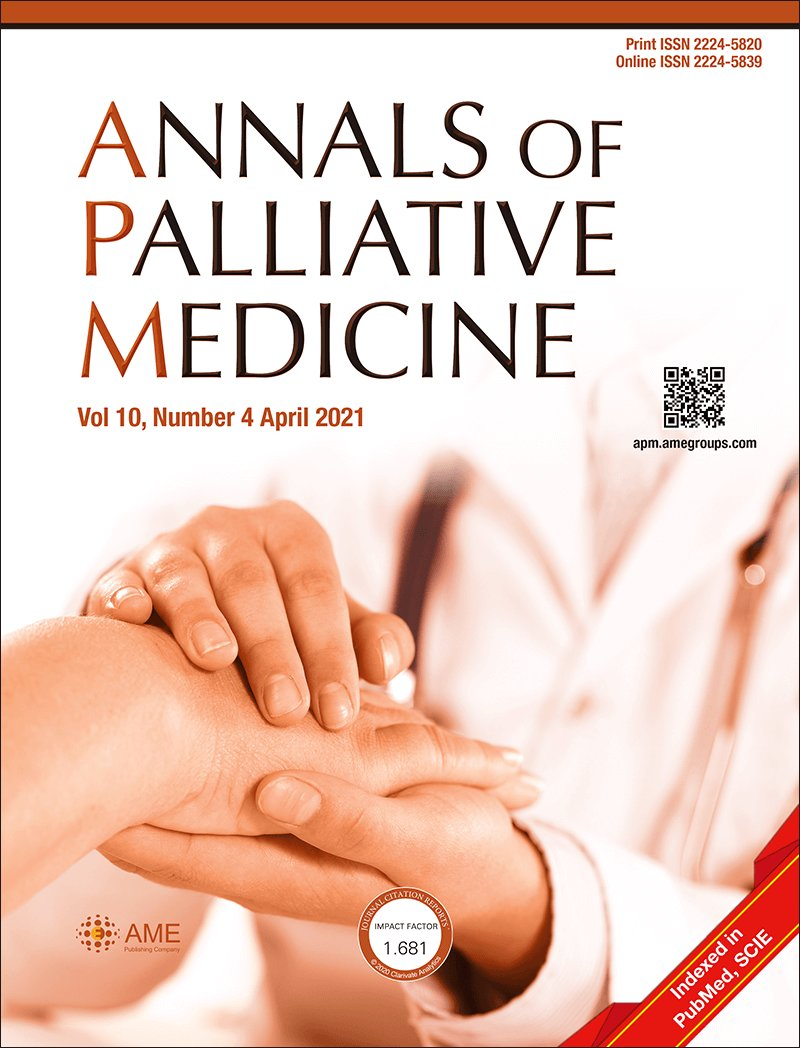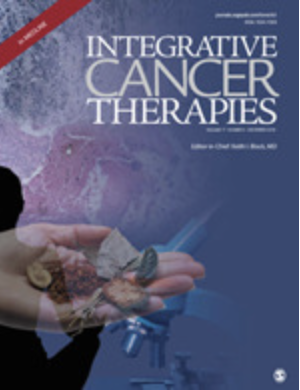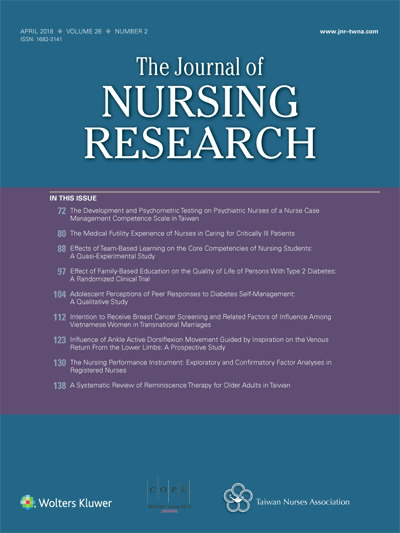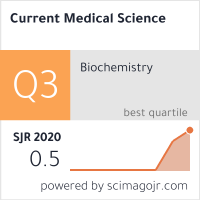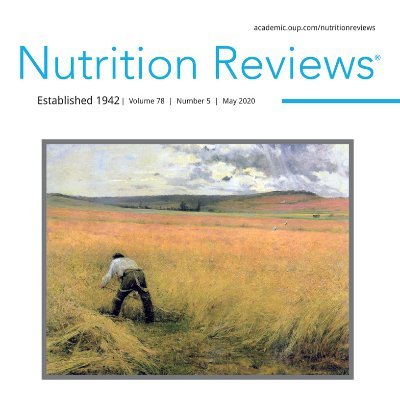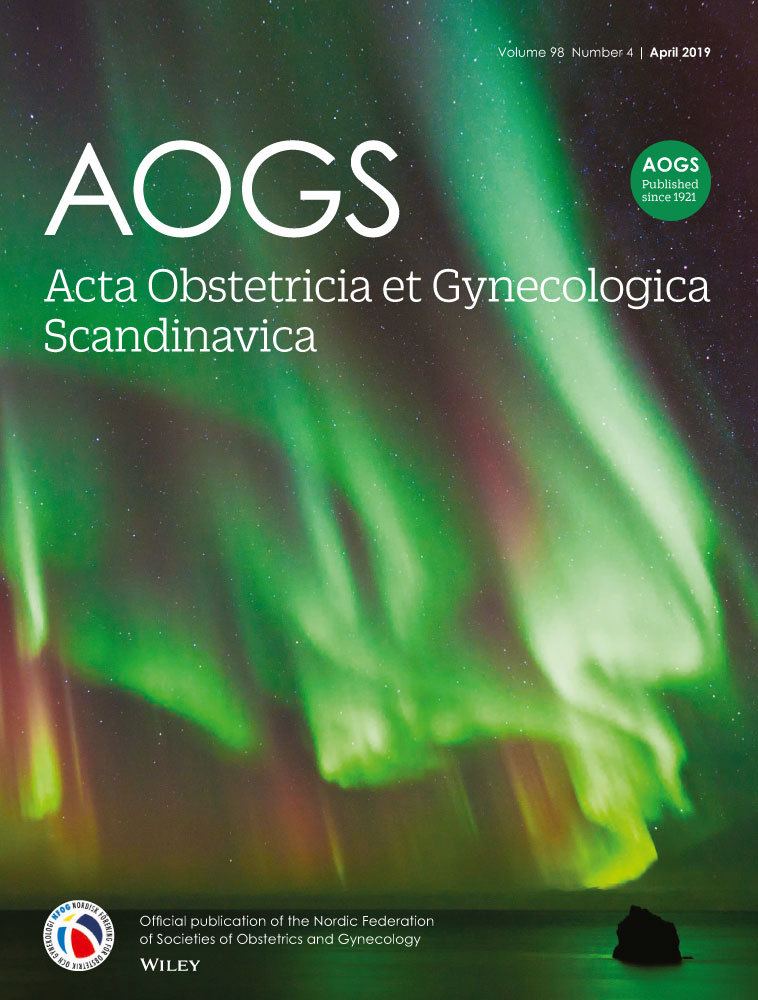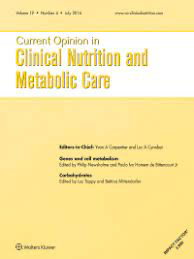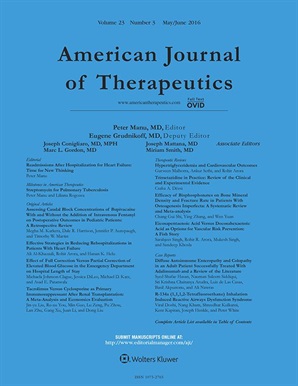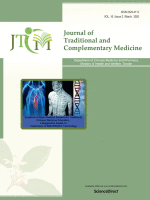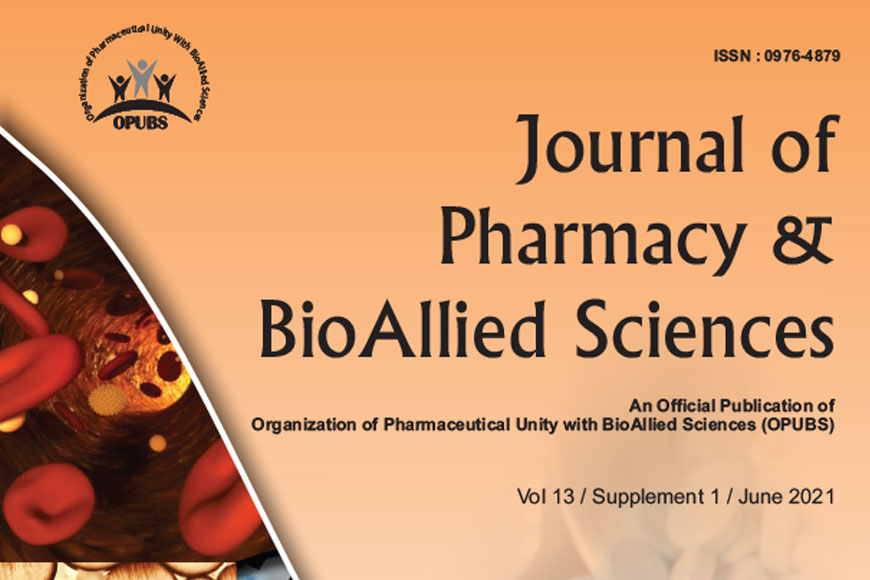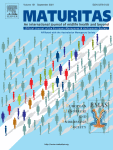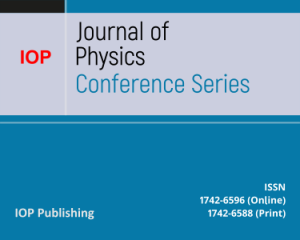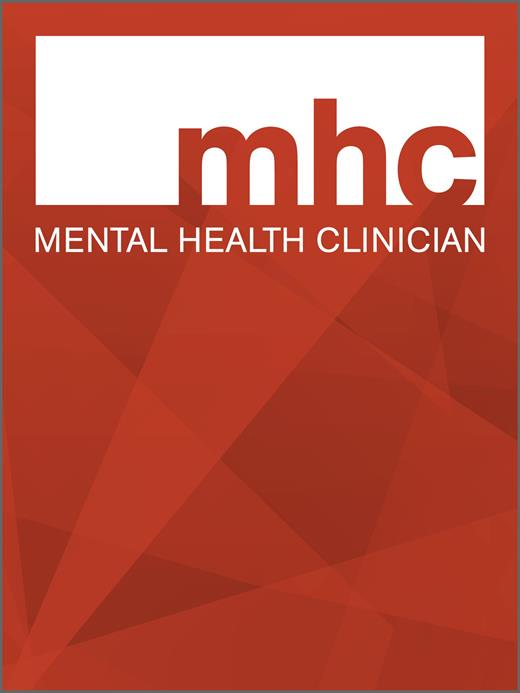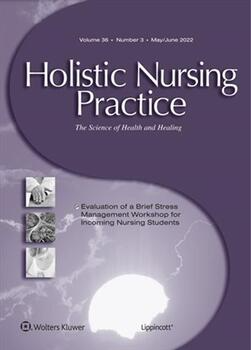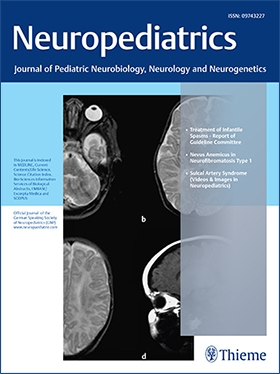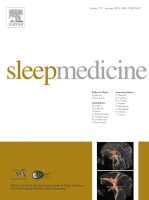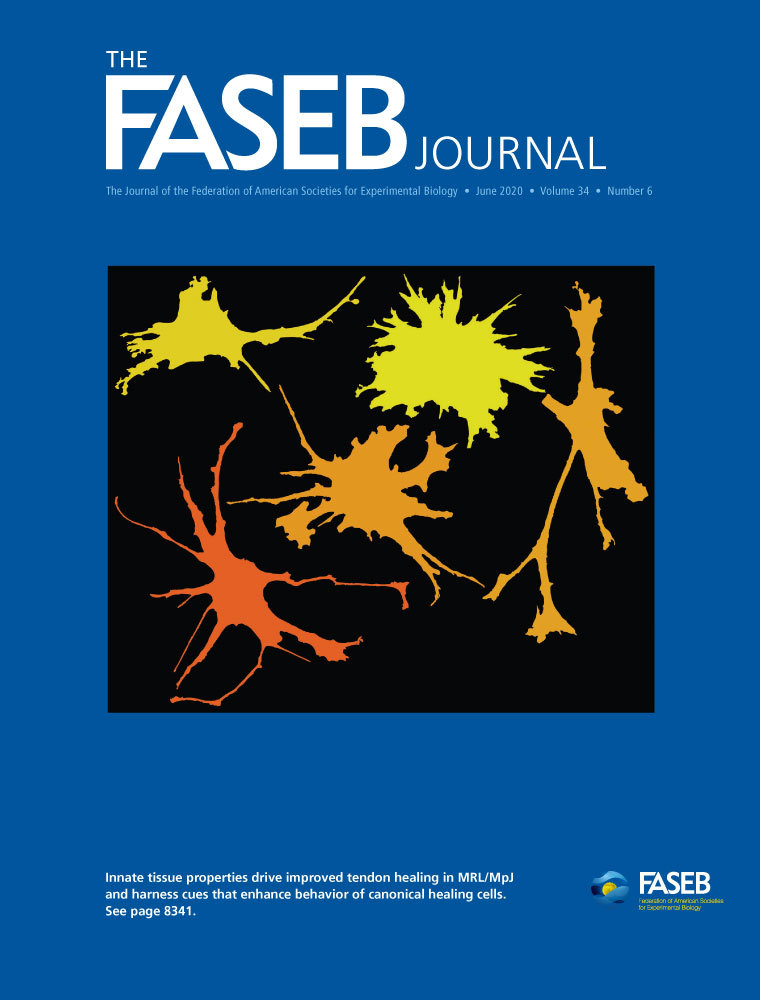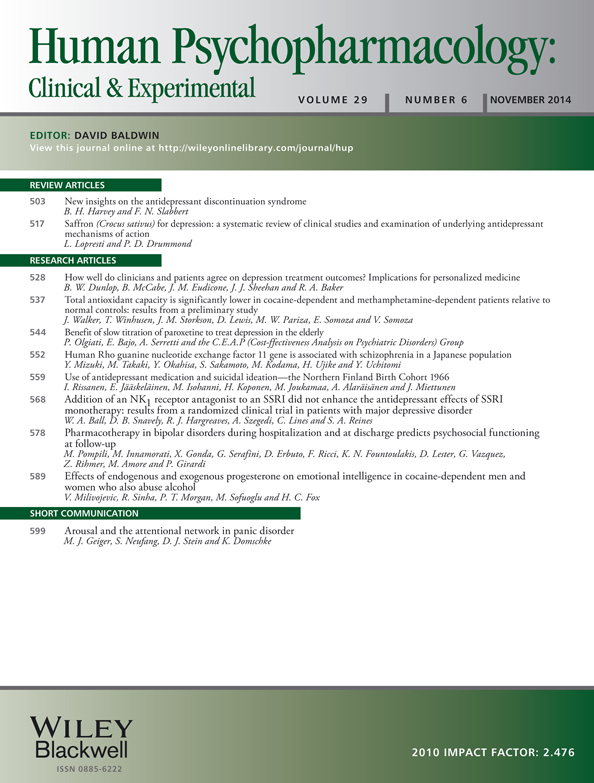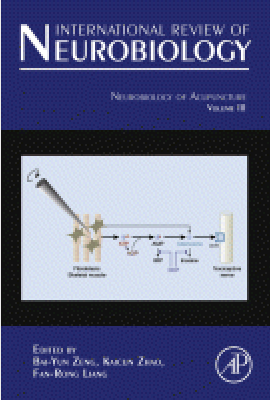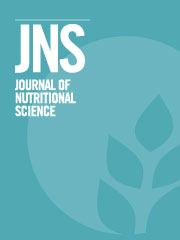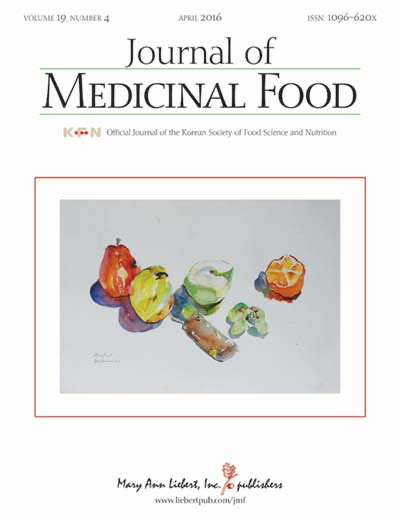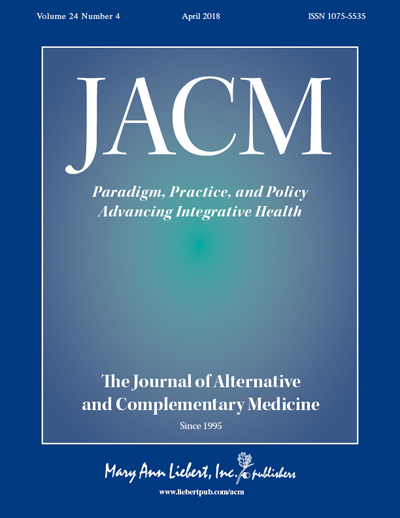Presentation Slides
Chinese Medicine Research Hub
Cohort Study
Higher consumption of ultra-processed food by pregnant women was linked to an increased risk of infantile atopic dermatitis within the first year of life.
2024 Nutrition Journal Association of maternal ultra-processed food consumption during pregnancy with atopic dermatitis in infancy: Korean Mothers and Children’s Environmental Health (MOCEH) study
Jang W, Kim M, Ha E, Kim H
Chinese Medicine Research Hub
Randomised Controlled Trial
Consuming jujube notably reduces waist circumference, triglycerides, and stress, while increasing high-density lipoprotein cholesterol in subjects with metabolic syndrome.
2024 Complementary Therapies in Medicine The effects of jujube (Ziziphus jujube) on metabolic and mental health outcomes in patients with metabolic syndrome: A randomized controlled trial
Parastouei K, Nashtar SB, Al-Attar Z, Shekarchizadeh-Esfahani P, Askari G
Chinese Medicine Research Hub
Review Article
Pumpkin seeds are recognised for their medicinal, nutritional, and cosmetic benefits, including anti-diabetic, heart disease prevention, anti-cancer, and antioxidant qualities.
2024 The Natural Products Journal Pumpkin Seeds (Cucurbita spp.) as a Nutraceutical Used In Various Lifestyle
Disorders
Wal A, Singh MR, Gupta A, Rathore S, Rout RR, Wal P
Chinese Medicine Research Hub
Systematic Review
Pomegranate fruit and its phytochemicals may offer a novel, natural alternative for the treatment of pathological anxiety, with fewer adverse effects than traditional medications.
2023 Brain Research Pomegranate (Punica granatum L.) and its phytochemicals as anxiolytic; an underreported effect with therapeutic potential: A systematic review
Flores-Bazán T, Betanzos-Cabrera G, Guerrero-Solano JA, Negrete-Díaz JV, German-Ponciano LJ, Olivo-Ramírez D
Chinese Medicine Research Hub
Cohort Study
Long-term consumption of green tea can potentially lessen the risk of depression in postmenopausal women by decreasing inflammation and boosting estradiol levels.
2023 Nutrients Long-Term Consumption of Green Tea Can Reduce the Degree of Depression in Postmenopausal Women by Increasing Estradiol
Wan Z, Qin X, Tian Y, Ouyang F, Wang G, Wan Q
Chinese Medicine Research Hub
Experimental Study
A combination of Walnut Peptide and Casein Peptide substantially alleviates anxiety disorder symptoms and enhances memory by improving neurotransmitter function in mice.
2023 Frontiers in Nutrition Combination of Walnut Peptide and Casein Peptide alleviates anxiety and improves memory in anxiety mices
Li Q, Jia X, Zhong Q, Zhong Z, Wang Y, Tang C, Zhao B, Feng H, Hao J, Zhao Z, He J, Zhang Y
Chinese Medicine Research Hub
Randomised Controlled Trial
A beverage formula containing fish roe, snow fungus, and yeast enhances cognitive function by improving memory, response times, and emotional recognition, while reducing anxiety and fatigue.
2023 Nutrients Effectiveness of Fish Roe, Snow Fungus, and Yeast Supplementation for Cognitive Function: A Randomized, Double-Blind, Placebo-Controlled Clinical Trial
Lin YK, Lin YH, Chiang CF, Jingling L
Chinese Medicine Research Hub
Animal Study
Fermented Pueraria lobata root extract and Glycine max extract showed estrogen-like activities, reducing depressive symptoms in menopausal mice but not increasing female cancer risks.
2023 Journal of Functional Foods Effects of Pueraria lobata root and Glycine max (L.) Merrill extracts fermented with Lactiplantibacillus plantarum on the depressive-like behavior in ovariectomized mice via upregulation of hippocampal BDNF
Ha J, Jang HM, Choi I
Chinese Medicine Research Hub
Systematic Review
There is evidence to support significant improvements to total sleep time and sleep efficiency with the ingestion of tart cherries.
2023 Current Sleep Medicine Reports Too Sour to be True? Tart Cherries (Prunus cerasus) and Sleep: a Systematic Review and Meta-analysis
Stretton B, Eranki A, Kovoor J, Bacchi S, Gupta A, Maddern G, Boyd M
Chinese Medicine Research Hub
Review Article
Vitamin D deficiency could accelerate depressive symptoms and suicide risks, and vitamin D supplementation may mitigate these effects.
2023 Nutrients Vitamin D in Depression: A Potential Bioactive Agent to Reduce Suicide and Suicide Attempt Risk
Somoza-Moncada MM, Turrubiates-Hernández FJ, Muñoz-Valle JF, Gutiérrez-Brito JA, Díaz-Pérez SA, Aguayo-Arelis A, Hernández-Bello J
Chinese Medicine Research Hub
Animal Study
Pumpkin seeds have been shown to provide neuropharmacological benefits such as reducing anxiety and depression, and improving memory.
2023 Behavioural Neurology Cucurbita maxima Seeds Reduce Anxiety and Depression and Improve Memory
Wahid S, Alqahtani A, Khan RA
Chinese Medicine Research Hub
Theoretical Article
Acupuncture may enhance the effectiveness of cognitive-behavioral therapy for people suffering from insomnia and related conditions.
2023 Sleep Medicine Clinics Acupuncture as an Adjunct Treatment to Cognitive-Behavioral Therapy for Insomnia
Kutana S, Mao JJ, Garland SN
Chinese Medicine Research Hub
Review Article
Honey exhibits multifaceted benefits for brain health, acting as a memory booster, neuroprotective agent, anti-stress, and anti-nociceptive substance, fostering potential therapeutic applications to enhance overall cognitive well-being.
2023 Frontiers in Aging Neuroscience Honey on brain health: A promising brain booster
Zamri NA, Ghani N, Ismail CAN, Zakaria R, Shafin N
Chinese Medicine Research Hub
Experimental Study
Pu-erh tea can potentially prevent depression-like behaviors induced by nighttime blue light from electronic devices by reshaping gut microbiota and increasing short-chain fatty acids generation.
2023 Food & Function Long-term Pu-erh tea consumption improves blue light-induced depression-like behaviors
Zhao S, Hu S, Sun K, Luo L, Zeng L
Chinese Medicine Research Hub
Cohort Study
Acupuncture shows promise in improving psychiatric symptoms, physical symptoms, and quality of life in patients with treatment-resistant mood disorders, highlighting its potential as a complementary therapy for these conditions.
2022 Journal of Acupuncture and Meridian Studies Effect of Acupuncture on Physical Symptoms and Quality of Life in Treatment-Resistant Major Depressive Disorder and Bipolar Disorder: a Single-Arm Longitudinal Study
Matsuura Y, Hongo S, Taniguchi H, Yasuno F, Sakai T
Chinese Medicine Research Hub
Review Article
Chaihu Shugan powder, a traditional Chinese medicine, presents potential advantages in treating post-stroke depression, showing potential as an alternative to conventional antidepressants.
2022 Medicina A Chinese Classical Prescription Chaihu Shugan Powder in Treatment of Post-Stroke Depression: An Overview
Gao Z, Wang Y, Yu H
Chinese Medicine Research Hub
Systematic Review
Acupuncture, either in isolation or as an adjunct to pharmacological treatment, has clinical benefits and can be considered a safe option for managing depression.
2022 Research in Nursing & Health Efficacy and safety of acupuncture for depression: A systematic review and meta‐analysis
Chen B, Wang CC, Lee KH, Xia JC, Luo Z
Chinese Medicine Research Hub
Randomised Controlled Trial
Walnut consumption improves mental health indicators and negates some negative effects of academic stress on students' health and gut microbiota, especially in females.
2022 Nutrients The Effects of Walnuts and Academic Stress on Mental Health, General Well-Being and the Gut Microbiota in a Sample of University Students: A Randomised Clinical Trial
Herselman MF, Bailey S, Deo P, Zhou XF, Gunn KM, Bobrovskaya L
Chinese Medicine Research Hub
Review Article
Eating two gold kiwifruit daily can lead to significant improvements in mood and energy, thereby boosting psychological well-being in adults.
2022 Nutrients The Role of Kiwifruit in Supporting Psychological Well-Being: A Rapid Review of the Literature
Billows M, Kakoschke N, Zajac IT
Chinese Medicine Research Hub
Randomised Controlled Trial
Consumption of wild blueberries over six months can improve cognitive performance and speed of processing information amongst older adults.
2022 Nutritional Neuroscience Six-month intervention with wild blueberries improved speed of processing in mild cognitive decline: a double-blind, placebo-controlled, randomized clinical trial.
Cheatham CL, Canipe LG, Millsap G, Stegall JM, Chai SC, Sheppard KW, Lila MA
Chinese Medicine Research Hub
Review Article
Depression, a prevalent and debilitating disorder, necessitates novel treatments beyond conventional drugs. Stingless bee honey, rich in antioxidants, emerges as a potential antidepressant candidate, explored comprehensively through monoamine, inflammatory, and neurotrophin hypotheses.
2022 Molecules Pathophysiology of Depression: Stingless Bee Honey Promising as an Antidepressant
Zakaria FH, Samhani I, Mustafa MZ, Shafin N
Chinese Medicine Research Hub
Network Pharmacology
Combining traditional Chinese medicine may offer potential therapeutic value in treating both Alzheimer's disease and major depressive disorder simultaneously.
2022 Natural Product Communications Screening Traditional Chinese Medicine Combination for Co-Treatment of Alzheimer's Disease and Major Depressive Disorder by Network Pharmacology
Huang Z, Fang Y, Wang X, Wang Q, Wang T
Chinese Medicine Research Hub
Review Article
Xiao Yao San has potential as an effective and safe alternative treatment for depression, offering multiple mechanisms of action for its antidepressant effects.
2022 Frontiers in Pharmacology Research progress on classical traditional chinese medicine formula xiaoyaosan in the treatment of depression
Chen J, Lei C, Li X, Wu Q, Liu C, Ma Q, Chen J.
Chinese Medicine Research Hub
Systematic Review
Chinese herbal medicine shows promising and safe outcomes in relieving functional dyspepsia symptoms and associated psychological disorders.
2022 Frontiers in Neuroscience Chinese Herbal Medicine for Functional Dyspepsia With Psychological Disorders: A Systematic Review and Meta-Analysis
Luo X, Wang L, Fang S, Qing X, Jiang T, Yang Y, Su X, Wei W
Chinese Medicine Research Hub
Systematic Review
Vitamin D supplementation, particularly in doses greater than 2,000 IU/day, can help reduce depressive symptoms in adults.
2022 Critical Reviews in Food Science and Nutrition The effect of vitamin D supplementation on depressive symptoms in adults: A systematic review and meta‐analysis of randomized controlled trials
Mikola T, Marx W, Lane MM, Hockey M, Loughman A, Rajapolvi S, Rocks T, O’Neil A, Mischoulon D, Valkonen-Korhonen M, Lehto SM, Ruusunen A
Chinese Medicine Research Hub
Randomised Controlled Trial
Modified Xiao Chai Hu Decoction combined with mirtazapine shows superior effectiveness in treating persistent depressive disorder compared to traditional Chinese medicine alone.
2022 Frontiers in Pharmacology Modified Xiaochaihu Decoction Combined with Mirtazapine in the Treatment of Persistent Depression: A Pilot Randomized Controlled Trial
Xin Li, Xiuyu Li, Man Gong, Chaoqun Li, Jing Li, Chao Zhou, Tingting He
Chinese Medicine Research Hub
Systematic Review
Chinese herbal medicine shows evident efficacy in treating coronary heart disease patients with anxiety or depression, notably improving symptoms of angina pectoris.
2022 Frontiers in Pharmacology Evidence and Characteristics of Traditional Chinese Medicine for Coronary Heart Disease Patients With Anxiety or Depression: A Meta-Analysis and Systematic Review
Wang B, Teng Y, Li Y, Lai S, Wu Y, Chen S, Li T, Han X, Zhou H, Wang Y, Lu Z, Li H, Ding Y, Ma L, Zhao M, Wang X
Chinese Medicine Research Hub
Randomised Controlled Trial
Inhalation aromatherapy using lavender and chamomile essential oils effectively reduces depression, anxiety, and stress levels in community-dwelling older adults.
2022 Explore: The Journal of Science & Healing The effects of Lavender and Chamomile essential oil inhalation aromatherapy on depression, anxiety and stress in older community-dwelling people: A randomized controlled trial
Ebrahimi H, Mardani A, Basirinezhad MH, Hamidzadeh A, Eskandari F
Chinese Medicine Research Hub
Systematic Review
Acupuncture can be a safe and effective alternative therapy to conventional drugs for improving sleep quality and relieving symptoms in patients with active depression.
2022 Frontiers in Psychiatry The Role of Acupuncture in the Management of Insomnia as a Major or Residual Symptom Among Patients With Active or Previous Depression: A Systematic Review and Meta-Analysis
Zhao FY, Kennedy GA, Spencer SJ, Conduit R, Zhang WJ, Fu QQ, Zheng Z
Chinese Medicine Research Hub
Systematic Review
Xiao Yao San, alone or combined with anxiolytics, assists in better improvement and safety in treating anxiety disorders compared to anxiolytics alone.
2022 Evidence-Based Complementary and Alternative Medicine Evaluation of the Safety and Efficacy of Xiao Yao San as a Treatment for Anxiety: A Systematic Review and Meta-Analysis
Lin J, Ji Y, Si J, Wang G, Li X, Shen L
Chinese Medicine Research Hub
Xiang Fu, a traditional Chinese herbal medicine, shows significant antidepressant effects.
2022 Journal of Ethnopharmacology The association study of chemical compositions and their pharmacological effects of Cyperi Rhizoma (Xiangfu), a potential traditional Chinese medicine for treating depression
Lu J, Li W, Gao T, Wang S, Fu C, Wang S
Chinese Medicine Research Hub
Review Article
Acupuncture could help manage different types of depression by increasing neuroplasticity, decreasing brain inflammation, and reducing side effects of conventional antidepressant treatment.
2022 Current Neuropharmacology Potential Mechanisms and Clinical Effectiveness of Acupuncture in
Depression
Yang NN, Lin LL, Li YJ, Li HP, Cao Y, Tan CX, Hao XW, Ma SM, Wang L, Liu CZ
Chinese Medicine Research Hub
Experimental Study
Saffron and its bioactive molecules, notably crocins, have been found to be as effective as common antidepressants in treating depression disorders.
2022 Molecules Anti-Depressant Properties of Crocin Molecules in Saffron
Siddiqui SA, Ali Redha A, Snoeck ER, Singh S, Simal-Gandara J, Ibrahim SA, Jafari SM
Chinese Medicine Research Hub
Randomised Controlled Trial
Vitamin D supplementation effectively improves depressive symptoms in women with type 2 diabetes and low vitamin D levels, regardless of the dose administered.
2022 Journal of Diabetes Research Vitamin D Supplementation for the Treatment of Depressive Symptoms in Women with Type 2 Diabetes: A Randomized Clinical Trial
Penckofer S, Ridosh M, Adams W, Grzesiak M, Woo J, Byrn M, Kouba J, Sheean P, Kordish C, Durazo-Arvizu R, Wallis D, Emanuele MA, Halaris A
Chinese Medicine Research Hub
Network Pharmacology
The Gui Zhi-Shao Yao herb pair in traditional Chinese medicine potentially treats chronic pain, anxiety, and depression through interactions with nine key targets.
2022 Annals of Medicine A network pharmacology approach to predict potential targets and mechanisms of “Ramulus Cinnamomi (cassiae) – Paeonia lactiflora” herb pair in the treatment of chronic pain with comorbid anxiety and depression
Pan HT, Xi ZQ, Wei XQ, Wang K
Chinese Medicine Research Hub
Animal Study
The traditional Chinese medicine Gan Mai Da Zao Tang may lessen depressive behaviors in rats, likely through licorice increasing serotonin transporter and brain-derived neurotrophic factor signals in the hippocampus.
2022 Plants Major Plant in Herbal Mixture Gan-Mai-Da-Zao for the Alleviation of Depression in Rat Models
Li YX, Cheng KC, Hsu CT, Cheng JT, Yang TT
Chinese Medicine Research Hub
Systematic Review
High prevalence of insomnia, anxiety, and depression among perimenopausal women, emphasizing the importance of exploring acupuncture as a potential green therapy for effectively addressing these interconnected issues.
2022 Medicine Can acupuncture improve sleep quality and anxiety among women during perimenopause?
Ping Y, Liang C, Fan X, Zhang L, Ying D, Wang Z
Chinese Medicine Research Hub
Randomised Controlled Trial
Dark chocolate exerts prebiotic effects and may improve negative emotional states via the gut-brain axis.
2022 The Journal of Nutritional Biochemistry Consumption of 85% cocoa dark chocolate improves mood in association with gut microbial changes in healthy adults: a randomized controlled trial
Shin JH, Kim CS, Cha L, Kim S, Lee S, Chae S, Chun WY, Shin DM
Chinese Medicine Research Hub
Meta-Analysis
Saffron intake might aid in reducing depressive symptoms but it should not be regarded as an exclusive solution for treating depression.
2022 Pharmacological Research Saffron, as an adjunct therapy, contributes to relieve depression symptoms: An umbrella meta-analysis
Musazadeh V, Zarezadeh M, Faghfouri AH, Keramati M, Ghoreishi Z, Farnam A
Chinese Medicine Research Hub
Randomised Controlled Trial
Auricular acupressure may be a safe and effective technique for reducing burnout and secondary traumatic stress in healthcare workers.
2021 Journal of Trauma Nursing Effects of Acupuncture and Acupressure on Burnout in Health Care Workers: A Randomized Trial
Afrasiabi J, McCarty R, Hayakawa J, Barrows J, Lee K, Plouffe N, Schomberg J
Chinese Medicine Research Hub
Review Article
Coconut oil has potential therapeutic value in treating Alzheimer's disease by suppressing neuro-inflammation, reversing neurodegeneration, and inhibiting secretion of harmful peptides.
2021 Trends in Food Science & Technology Dietary prospects of coconut oil for the prevention and treatment of Alzheimer's disease (AD): A review of recent evidences
Ramesh SV, Krishnan V, Praveen S, Hebbar KB
Chinese Medicine Research Hub
Systematic Review
The comprehensive evaluation results show that scalp acupuncture is effective in treating insomnia.
2021 Evidence-Based Complementary and Alternative Medicine Efficacy and Safety of Scalp Acupuncture for Insomnia: A Systematic Review and Meta-Analysis
Fu-gui Liu, Ai-hua Tan, Chao-qun Peng, Yun-xia Tan, Ming-chao Yao
Chinese Medicine Research Hub
Systematic Review
Cocoa-rich products consumption can improve mood and affect in the short term.
2021 Critical Reviews in Food Science and Nutrition The effect of cocoa-rich products on depression, anxiety, and mood: A systematic review and meta-analysis
Fusar-Poli L, Gabbiadini A, Ciancio A, Vozza L, Signorelli MS, Aguglia E
Chinese Medicine Research Hub
Randomised Controlled Trial
Combining resistance training with saffron supplementation enhances happiness levels and increases dopamine and serotonin concentrations more than resistance training alone.
2021 Physiology & Behavior Impact of saffron (Crocus Sativus Linn) supplementation and resistance training on markers implicated in depression and happiness levels in untrained young males
Moghadam BH, Bagheri R, Roozbeh B, Ashtary-Larky D, Gaeini AA, Dutheil F, Wong A
Chinese Medicine Research Hub
Review Article
Pomegranate has a variety of phytochemicals which possess wide-ranging activities including antioxidant, antimicrobial, anti-oncogenic properties, and resistance to cerebrovascular disease.
2021 Journal of Ethnopharmacology A unique understanding of traditional medicine of pomegranate, Punica granatum L. and its current research status
Ge S, Duo L, Wang J, GegenZhula , Yang J, Li Z, Tu Y
Chinese Medicine Research Hub
Randomised Controlled Trial
Women receiving IVF perceived that acupuncture or sham acupuncture gave them a psychological advantage through increased relaxation, reduced psychological stress, and enhanced well-being and self-efficacy.
2021 Reproductive BioMedicine & Society Online IVF, acupuncture and mental health: a qualitative study of perceptions and experiences of women participating in a randomized controlled trial of acupuncture during IVF treatment
de Lacey S, Sanderman E, Smith CA
Chinese Medicine Research Hub
Systematic Review
Acupuncture therapy aimed at reducing anxiety in patients with generalised anxiety disorder has certain beneficial effects compared to controls.
2021 Annals of General Psychiatry Effectiveness of acupuncture on anxiety disorder: a systematic review and meta-analysis of randomised controlled trials
Yang, Xy., Yang, Nb., Huang, Ff. et al.
Chinese Medicine Research Hub
Systematic Review
All schools of Tai Chi chuan can improve the mental health of the elderly.
2021 Physical Activity and Health Effects of Tai Chi Chuan on the Physical and Mental Health of the Elderly: A Systematic Review
Xianjian C, Datao X
Chinese Medicine Research Hub
Review Article
Shaded gardening of Japanese matcha creates high-quality tea with unique compounds that can boost physical and mental health.
2020 Molecules Health Benefits and Chemical Composition of Matcha Green Tea: A Review
Kochman J, Jakubczyk K, Antoniewicz J, Mruk H, Janda K
Chinese Medicine Research Hub
Randomised Controlled Trial
Ten sessions of electroacupuncture can improve the sleep quality of patients with insomnia without serious adverse effects.
2020 Nature and Science of Sleep Efficacy and Safety of Electroacupuncture for Insomnia Disorder: A Multicenter, Randomized, Assessor-Blinded, Controlled Trial
Lee B, Kim BK, Kim HJ, Jung IC, Kim AR, Park HJ, Kwon OJ, Lee JH, Kim JH.
Chinese Medicine Research Hub
Systematic Review
Acupuncture is associated with a reduction in the risk of depression during long-term follow-up in patients with trigeminal neuralgia.
2020 Neuropsychiatric Disease and Treatment Long-Term Beneficial Effects of Acupuncture with Reduced Risk of Depression Development Following Trigeminal Neuralgia: A Nationwide Population-Based Cohort Study
Liao CC, Lin CL, Liao KR, Li JM
Chinese Medicine Research Hub
Review Article
Omega-3 polyunsaturated fatty acids supplementation during the prenatal and perinatal period could have a protective effect on neurodevelopmental disorders including ADHD, ASD, and MDD in youth.
2020 Clinical Psychopharmacology and Neuroscience Nutritional Neuroscience as Mainstream of Psychiatry: The Evidence- Based Treatment Guidelines for Using Omega-3 Fatty Acids as a New Treatment for Psychiatric Disorders in Children and Adolescents
Chang JPC, Su KP
Chinese Medicine Research Hub
Review Article
Acupuncture appears to be a promising complementary treatment for Alzheimer's disease, according to findings from systematic reviews and meta-analyses.
2020 Frontiers in Aging Neuroscience Acupuncture for the Treatment of Alzheimer's Disease: An Overview of Systematic Reviews
Huang J, Shen M, Qin X, Wu M, Liang S, Huang Y
Chinese Medicine Research Hub
Randomised Controlled Trial
Daily supplementation of Matcha Green Tea Powder is found to enhance cognitive functions in elderly women.
2020 Nutrients Effects of Matcha Green Tea Powder on Cognitive Functions of Community-Dwelling Elderly Individuals
Sakurai K, Shen C, Ezaki Y, Inamura N, Fukushima Y, Masuoka N, Hisatsune T
Chinese Medicine Research Hub
Review Article
Pumpkin seeds carry bioactive compounds with antidiabetic, antidepressant, antioxidant, antitumor, and cytoprotective activities, also aiding in microbiological infections and specific organ disorders.
2020 Scientific African The potential of pumpkin seeds as a functional food ingredient: A review
Dotto JM, Chacha JS
Chinese Medicine Research Hub
Experimental Study
Jujube seed extract has been found to primarily reduce anxiety by regulating the GABAergic and serotonergic synapse pathways, specifically modulating GABRA1, HTR1A, and HTR2A.
2020 Frontiers in Pharmacology Regulation of GABAA and 5-HT Receptors Involved in Anxiolytic Mechanisms of Jujube Seed: A System Biology Study Assisted by UPLC-Q-TOF/MS and RT-qPCR Method
Chen L, Zhang X, Hu C, Zhang Y, Zhang L, Kan J, Li B, Du J
Chinese Medicine Research Hub
Systematic Review
Tai Chi exercise was beneficial for ameliorating physical and mental health of patients with knee osteoarthritis and should be available as an alternative non-pharmacological therapy in rehabilitation programmes.
2020 Clinical Rehabilitation Tai Chi exercise can ameliorate physical and mental health of patients with knee osteoarthritis: systematic review and meta-analysis
Hu L, Wang Y, Liu X, Ji X, Ma Y, Man S, Hu Z, Cheng J, Huang F.
Chinese Medicine Research Hub
Randomised Controlled Trial
Inhalation aromatherapy using Damask rose and lavender essential oils can reduce anxiety and pain in women after they have had a cesarean section.
2020 Journal of Complementary and Integrative Medicine Compare the effect of aromatherapy using lavender and Damask rose essential oils on the level of anxiety and severity of pain following C-section: A double-blinded randomized clinical trial
Abbasijahromi A, Hojati H, Nikooei S, Jahromi HK, Dowlatkhah HR, Zarean V, Farzaneh M, Kalavani A
Chinese Medicine Research Hub
Systematic Review
In the treatment of chronic pain with depression, acupuncture could not only achieve better clinical efficacy, but also have higher safety compared with conventional mediation therapy.
2020 Evidence-Based Complementary and Alternative Medicine Effect of Acupuncture on Chronic Pain with Depression: A Systematic Review
Yan B, Zhu S, Wang Y, Da G, Tian G
Chinese Medicine Research Hub
Experimental Study
Unpasteurised milk and dairy products intake could potentially alter gut microbiome composition which may influence psychological functioning.
2020 Nutrients Recipe for a Healthy Gut: Intake of Unpasteurised Milk Is Associated with Increased Lactobacillus Abundance in the Human Gut Microbiome
Butler MI, Bastiaanssen TFS, Long-Smith C, Berding K, Morkl S, Cusack AM, Strain C, Busca K, Porteous-Allen P, Claesson MJ, Stanton C, Cryan JF, Allen D, Dinan TG
Chinese Medicine Research Hub
Systematic Review
Aromatherapy, specifically with lavender essential oil, can effectively alleviate maternal anxiety and labor pain.
2020 Ethiopian Journal of Health Sciences The Effectiveness of Aromatherapy in the Management of Labor Pain and Anxiety: A Systematic Review
Mahbubeh Tabatabaeichehr , Hamed Mortazavi
Chinese Medicine Research Hub
Systematic Review
These reports suggest the benefits of a walnut-enriched diet in brain disorders and in other chronic diseases, due to the additive or synergistic effects of walnut components for protection against oxidative stress and inflammation in these diseases.
2020 Nutrients Beneficial Effects of Walnuts on Cognition and Brain Health
Chauhan A, Chauhan V.
Chinese Medicine Research Hub
Experimental Study
Chrysanthemum morifolium, Naringenin and Apigenin can alleviate depression-like behavior by interfering with specific metabolic pathways.
2020 Artificial Cells, Nanomedicine, and Biotechnology A metabolomic study on the anti-depressive effects of two active components from Chrysanthemum morifolium
Liu T, Zhou N, Xu R, Cao Y, Zhang Y, Liu Z, Zheng X, Feng W
Chinese Medicine Research Hub
Systematic Review
Acupuncture treatment of insomnia is efficacious, not because of its placebo effect.
2020 Annals of Palliative Medicine Placebo effect of acupuncture on insomnia: a systematic review and meta-analysis
Liu C, Xi H, Wu W, Wang X, Qin S, Zhao Y, Zheng S, Wan Q, Xu L.
Chinese Medicine Research Hub
Clinical Study
Tian Wang Bu Xin Dan can potentially alleviate symptoms of cancer-related insomnia similarly to cognitive-behavioral therapy.
2020 Integrative Cancer Therapies Comparative Effectiveness of Cheonwangbosimdan (Tian Wang Bu Xin Dan) Versus Cognitive-Behavioral Therapy for Insomnia in Cancer Patients: A Randomized, Controlled, Open-Label, Parallel-Group, Pilot Trial
Moon SY, Jerng UM, Kwon OJ, Jung SY, Lee JY, Yoon SW, Shin WC, Byun JI, Lee JH
Chinese Medicine Research Hub
Systematic Review
Aromatherapy enhances physio-psychological well-being in postpartum women.
2019 Journal of Nursing Research The Effects of Aromatherapy on Postpartum Women: A Systematic Review
TSAI SS, WANG HH, CHOU FH
Chinese Medicine Research Hub
Systematic Review
Acupuncture therapy is an effective and safe treatment for chronic pain-related insomnia.
2019 Evidence-Based Complementary and Alternative Medicine Acupuncture for Chronic Pain-Related Insomnia: A Systematic Review and Meta-Analysis
Fushui Liu, Jianyu You, Qi Li, Ting Fang, Mei Chen, Nana Tang, Xiaojun Yan
Chinese Medicine Research Hub
Systematic Review
Acupuncture yielded positive results for Alzheimer's Disease as determined via clinical efficacy rate, Mini-Mental State Examination score, Ability of Daily Living Scale score and Alzheimer’s Disease Assessment Scale-Cognition score.
2019 Current Medical Science Effectiveness of Acupuncture for Alzheimer's Disease: An Updated Systematic Review and Meta-analysis
Huang, Q., Luo, D., Chen, L. et al.
Chinese Medicine Research Hub
Randomised Controlled Trial
Our study offers the first evidence of the positive contribution of tea drinking to brain structure and suggests a protective effect on age-related decline in brain organisation.
2019 Aging Habitual tea drinking modulates brain efficiency: evidence from brain connectivity evaluation
Li J, Romero-Garcia R, Suckling J, Feng L.
Chinese Medicine Research Hub
Systematic Review
Saffron shows promising effectiveness in alleviating symptoms of depression and anxiety and augmenting the effects of antidepressants.
2019 Nutrition Reviews Effect of saffron supplementation on symptoms of depression and anxiety: a systematic review and meta-analysis
Marx W, Lane M, Rocks T, Ruusunen A, Loughman A, Lopresti A, Marshall S, Berk M, Jacka F, Dean OM
Chinese Medicine Research Hub
Meta-Analysis
Chamomile has demonstrative positive effects on generalized anxiety disorders and sleep quality, but exhibits minimal impact on state anxiety and insomnia.
2019 Phytotherapy Research Therapeutic efficacy and safety of chamomile for state anxiety, generalized anxiety disorder, insomnia, and sleep quality: A systematic review and meta‐analysis of randomized trials and quasi‐randomized trials
Hieu TH, Dibas M, Surya Dila KA, Sherif NA, Hashmi MU, Mahmoud M, Trang NTT, Abdullah L, Nghia TLB, Y MN, Hirayama K, Huy NT
Chinese Medicine Research Hub
Review Article
Evidence indicates that acupuncture treatment may be of benefit in several neuropsychiatric disorders, including depression, anxiety, schizophrenia, and Alzheimer's Disease.
2019 Frontiers in Psychiatry The Effects of Acupuncture on Glutamatergic Neurotransmission in Depression, Anxiety, Schizophrenia, and Alzheimer's Disease: A Review of the Literature
Tu CH, MacDonald I, Chen YH
Chinese Medicine Research Hub
Animal Study
Gan Mai Da Zao decoction has shown comparable anxiolytic effects to Diazepam and Buspirone in mice, possibly regulated by serotonin and gamma-aminobutyric acid receptors.
2019 Frontiers in Neuroscience GABA and 5-HT Systems Are Involved in the Anxiolytic Effect of Gan-Mai-Da-Zao Decoction
Chen HS, Gu LJ, Yang YX, Guo JY
Chinese Medicine Research Hub
Randomised Controlled Trial
Acupuncture during IVF treatment can possibly lower anxiety at the time of embryo transfer but seems to have no long-term impact on women's quality of life.
2019 Acta Obstetricia et Gynecologica Scandinavica The effects of acupuncture on the secondary outcomes of anxiety and quality of life for women undergoing IVF: A randomized controlled trial
Smith CA, de Lacey S, Chapman M, Ratcliffe J, Norman RJ, Johnson NP, Fahey P
Chinese Medicine Research Hub
Systematic Review
Most bioactive walnut micronutrients synergize to affect multiple metabolic pathways leading to protection from chronic noncommunicable diseases.
2018 Current Opinion in Clinical Nutrition and Metabolic Care Beneficial effects of walnut consumption on human health
Ros, Emilioa,b; Izquierdo-Pulido, Maríab,c; Sala-Vila, Aleix
Chinese Medicine Research Hub
Randomised Controlled Trial
Cherry juice increases sleep time and efficiency in older adults with insomnia, potentially due to its inhibition of a process that degrades tryptophan and stimulates inflammation.
2018 American Journal of Therapeutics Pilot Study of the Tart Cherry Juice for the Treatment of Insomnia and Investigation of Mechanisms
Losso JN, Finley JW, Karki N, Liu AG, Prudente A, Tipton R, Yu Y, Greenway FL
Chinese Medicine Research Hub
Systematic Review
Acupuncture might have effect in decreasing the number of micturition episodes, incontinence episodes, and nocturia episodes.
2018 Medicine Acupuncture for adults with overactive bladder: A systematic review and meta-analysis of randomized controlled trials
Zhao Y, Zhou J, Mo Q, Wang Y, Yu J, Liu Z.
Chinese Medicine Research Hub
Animal Study
Gan Mai Da Zao Tang, a traditional herbal formula, produced substantial antidepressant-like effects in rats by regulating monoamine neurotransmitters.
2018 Journal of Traditional and Complementary Medicine Antidepressant-like effects of Gan-Mai-Dazao-Tang via monoamine regulatory pathways on forced swimming test in rats
Huang HL, Lim SL, Lu KH, Sheen LY
Chinese Medicine Research Hub
Review Article
Saffron possesses major bioactive compounds such as safranal, crocin, and picrocrocin that are hypothesized to be integral to its antidepressant effects.
2018 Journal of Pharmacy And Bioallied Sciences Saffron (Crocus sativus L.): As an antidepressant
Siddiqui MJ, Saleh MSM, Basharuddin SNBB, Zamri SHB, Mohd Najib MH, Che Ibrahim MZ, binti Mohd Noor NA, Binti Mazha HN, Mohd Hassan N, Khatib A
Chinese Medicine Research Hub
Systematic Review
Green tea consumption was shown to reduce psychopathological symptoms like anxiety and was also shown to effect cognition, with noted benefits for memory and attention. Green tea was also linked with the activation of working memory as seen in functional MRI.
2017 Phytomedicine Green tea effects on cognition, mood and human brain function: A systematic review
Mancini E, Beglinger C, Drewe J, Zanchi D, Lang UE, Borgwardt S
Chinese Medicine Research Hub
Practice Guideline
Long-chain omega-3 polyunsaturated fatty acids have various health benefits for postmenopausal women including reducing triglycerides and improving depression and psychotic symptoms.
2017 Maturitas Recommendations of the Spanish Menopause Society on the consumption of omega-3 polyunsaturated fatty acids by postmenopausal women
Sánchez-Borrego R, von Schacky C, Osorio MJA, Llaneza P, Pinto X, Losa F, Navarro MC, Lubián D, Mendoza N
Chinese Medicine Research Hub
Randomised Controlled Trial
Acupuncture treatment effectively improved the quality of sleep and the quality of life for chronic hemodialysis patients.
2017 Journal of Physics Conference Series The effect of acupuncture treatment for insomnia in chronic hemodialysis patients
J A Widjaja, C Simadibrata, A Srilestari, M B H Marbun
Chinese Medicine Research Hub
Clinical Study
iRest Yoga Nidra combined with acupuncture significantly improves psychological health in veterans compared to using acupuncture alone.
2017 Mindfulness The Effect of Mindfulness and Acupuncture on Psychological Health in Veterans: an Exploratory Study
Wheeler MS, Glass CR, Arnkoff DB, Sullivan P, Hull A
Chinese Medicine Research Hub
Experimental Study
Lavender essential oil, particularly its primary constituents linalool and linalyl acetate, may offer a beneficial anxiolytic effect through its interaction with certain neurological mechanisms.
2017 Mental Health Clinician Essential oil of lavender in anxiety disorders: Ready for prime time?
Malcolm BJ, Tallian K
Chinese Medicine Research Hub
Review Article
Jujube possesses neuroprotective activities, including protecting neuronal cells against neurotoxin stress, stimulating neuronal differentiation, increasing expression of neurotrophic factors, and promoting memory and learning.
2017 Evidence-Based Complementary and Alternative Medicine A Review of Dietary Ziziphus jujuba Fruit (Jujube): Developing Health Food Supplements for Brain Protection
Chen J, Liu X, Li Z, et al.
Chinese Medicine Research Hub
Animal Study
Curcumin's potential anxiolytic and antidepressant impacts do not significantly alter behavior or interact with the benzodiazepine site of the gamma-aminobutyric acid receptor A.
2017 Holistic Nursing Practice Investigation of the Anxiolytic and Antidepressant Effects of Curcumin, a Compound From Turmeric (Curcuma longa), in the Adult Male Sprague-Dawley Rat
Ceremuga TE, Helmrick K, Kufahl Z, Kelley J, Keller B, Philippe F, Golder J, Padrón G
Chinese Medicine Research Hub
Randomised Controlled Trial
Kiwifruit consumption before bedtime significantly improves sleep quality and daytime function in individuals with chronic insomnia in comparison to pear consumption.
2017 Sleep and Biological Rhythms The effects of kiwi fruit consumption in students with chronic insomnia symptoms: a randomized controlled trial
Nødtvedt O, Hansen AL, Bjorvatn B, Pallesen S
Chinese Medicine Research Hub
Clinical Study
Saffron has shown potential as an effective and tolerable treatment for major depressive disorder with anxious distress.
2016 Neuropediatrics Crocus sativus L. versus Citalopram in the Treatment of Major Depressive Disorder with Anxious Distress: A Double-Blind, Controlled Clinical Trial
Ghajar A, Neishabouri S, Velayati N, Jahangard L, Matinnia N, Haghighi M, Ghaleiha A, Afarideh M, Salimi S, Meysamie A, Akhondzadeh S
Chinese Medicine Research Hub
Systematic Review
Acupuncture may have beneficial effects on improving dependency, global neurological deficiency, and some specific neurological impairments for people with stroke in the convalescent stage, with no obvious serious adverse events.
2016 Cochrane Database of Systematic Reviews Acupuncture for stroke rehabilitation
Yang A, Wu HM, Tang JL, Xu L, Yang M, Liu GJ.
Chinese Medicine Research Hub
Systematic Review
Our results suggest that acupuncture could be effective for treating insomnia after stroke.
2016 BMC Complementary Medicine and Therapies Acupuncture for insomnia after stroke: a systematic review and meta-analysis
Lee SH, Lim SM
Chinese Medicine Research Hub
Systematic Review
Chinese herbal medicine was superior to placebo and benzodiazepine drugs and was superior to benzodiazepines and psychotherapy alone as an adjunct therapy in terms of subjective sleep quality and quantity and safety.
2015 Sleep Medicine Updated clinical evidence of Chinese herbal medicine for insomnia: a systematic review and meta-analysis of randomized controlled trials
Xiaojia Ni, Johannah Linda Shergis, Xinfeng Guo, Anthony Lin Zhang, Yan Li, Chuanjian Lu, Charlie Changli Xue
Chinese Medicine Research Hub
Systematic Review
Acupuncture seems to be an effective add-on treatment in patients with depression and, to a lesser degree, in patients with schizophrenia.
2015 Explore: The Journal of Science & Healing Schizophrenia and Depression: A systematic Review of the Effectiveness and the Working Mechanisms Behind Acupuncture
Bosch P, van den Noort M, Staudte H, Lim S.
Chinese Medicine Research Hub
Review Article
Serotonin function, influenced by vitamin D and omega-3 fatty acids, plays a critical role in neuropsychiatric disorders and certain behavioral functions.
2015 The FASEB Journal Vitamin D and the omega‐3 fatty acids control serotonin synthesis and action, part 2: relevance for ADHD, bipolar disorder, schizophrenia, and impulsive behavior
Patrick RP, Ames BN
Chinese Medicine Research Hub
Systematic Review
TCM pattern-based treatments for depression frequently use Xiao Yao and Chai Hu Shu Gan decoctions, with Bai Shao and Chai Hu herbs common across different TCM patterns.
2015 Evidence-Based Complementary and Alternative Medicine Prescription of Chinese Herbal Medicine in Pattern-Based Traditional Chinese Medicine Treatment for Depression: A Systematic Review
Yeung WF, Chung KF, Ng KY, Yu YM, Zhang SP, Ng BFL, Ziea ETC
Chinese Medicine Research Hub
Systematic Review
Saffron, derived from Crocus sativus flower, shows similar efficacy to antidepressant medications in treating major depression, potentially due to its variety of biochemical effects.
2014 Human Psychopharmacology: Clinical and Experimental Saffron (Crocus sativus) for depression: a systematic review of clinical studies and examination of underlying antidepressant mechanisms of action
Lopresti AL, Drummond PD
Chinese Medicine Research Hub
Experimental Study
Honey, specifically its polyphenols, show promising signs of enhancing memory and counteracting neurodegenerative diseases by reducing oxidative stress and neuroinflammation.
2014 Evidence-Based Complementary and Alternative Medicine Neurological Effects of Honey: Current and Future Prospects
Mijanur Rahman M, Gan SH, Khalil MI
Chinese Medicine Research Hub
Systematic Review
Evidence of effectiveness of acupuncture for PTSD is encouraging but not cogent. Acupuncture may be a relatively safe alternative for PTSD in contrast to SSRI, if long-term therapy is needed for treatment.
2013 Evidence-Based Complementary and Alternative Medicine Acupuncture for Posttraumatic Stress Disorder: A Systematic Review of Randomized Controlled Trials and Prospective Clinical Trials
Young-Dae Kim, In Heo, Byung-Cheul Shin, Cindy Crawford, Hyung-Won Kang, Jung-Hwa Lim,
Chinese Medicine Research Hub
Systematic Review
The clinical efficacy of acupuncture appeared to be supported by evidence obtained from basic neuroendocrinological studies.
2013 International Review of Neurobiology Acupuncture for the treatment of insomnia
Kaicun Zhao
Chinese Medicine Research Hub
Experimental Study
Pomegranate juice can enhance memory function and brain activity in tasks related to verbal and visual memory in older adults experiencing memory problems.
2013 Evidence-Based Complementary and Alternative Medicine Pomegranate Juice Augments Memory and fMRI Activity in Middle-Aged and Older Adults with Mild Memory Complaints
Bookheimer SY, Renner BA, Ekstrom A, Li Z, Henning SM, Brown JA, Jones M, Moody T, Small GW
Chinese Medicine Research Hub
Clinical Study
Consuming two kiwifruits daily can improve overall mood, particularly for individuals starting with moderate mood disturbance.
2013 Journal of Nutritional Science Mood improvement in young adult males following supplementation with gold kiwifruit, a high-vitamin C food
Carr AC, Bozonet SM, Pullar JM, Vissers MCM
Chinese Medicine Research Hub
Systematic Review
Acupuncture might result in improvement in some outcomes in children with autism spectrum disorders.
2011 Cochrane Database of Systematic Reviews Acupuncture for autism spectrum disorders (ASD)
Cheuk DKL, Wong V, Chen WX
Chinese Medicine Research Hub
Randomised Controlled Trial
Tart cherry juice blend yielded modest improvements in sleep for older adults with insomnia, exhibiting effects similar to or better than natural products like valerian and melatonin.
2010 Journal of Medicinal Food Effects of a Tart Cherry Juice Beverage on the Sleep of Older Adults with Insomnia: A Pilot Study
Pigeon WR, Carr M, Gorman C, Perlis ML
Chinese Medicine Research Hub
Systematic Review
Clinical studies have shown that acupuncture may have a beneficial effect on insomnia compared with Western medication.
2009 The Journal of Alternative and Complementary Medicine Acupuncture for Treatment of Insomnia: A Systematic Review of Randomized Controlled Trials
Cao H, Pan X, Li H, Liu J.
Executive Summary
Write an executive summary in the form of a blog article on the topic of "Research into Chinese medicine treatment for Mental Health" summarising the research below and using language that can be easily understood by patients and avoiding medical jargon using a professional and caring tone of voice.
Write an executive summary in the form of a blog article on the topic of "Researched Chinese medicine treatments for Mental Health" summarising the research below in an objective and easy to understand way, and using language that can be easily understood by patients. Group the article into Chinese medicine treatments first, followed by nutrition and other treatments. Avoid using medical jargon and use a professional and caring tone of voice.
Write me a concise but easy to understand executive summary on the topic of "Chinese medicine treatments for Mental Health" based on the following research that I will give you. Your summary should be 2 paragraphs long in Australian English spelling and include references to the studies.
A Cohort Study published in 2024 in the journal Nutrition Journal found that Higher consumption of ultra-processed food by pregnant women was linked to an increased risk of infantile atopic dermatitis within the first year of life. The research used 861 pairs of pregnant women and their offspring from the Mothers' and Children's Environmental Health project in Korea. These women’s dietary intake was measured using the 24-hour recall method during 12-28 weeks gestation. Foods were classified as ultra-processed following the NOVA classification and their consumption was calculated as the proportion of total energy intake, with participants categorized into quartiles. The prevalence of infantile atopic dermatitis was assessed based on their medical histories and according to the International Study of Asthma and Allergies in Childhood criteria.
The results revealed that children born to mothers in the highest quartile of ultra-processed food consumption, compared to the lowest quartile, showed a higher risk towards atopic dermatitis within 12 months. This relationship became stronger after adjusting for certain confounding variables. Additionally, the link stayed consistent even after adjusting based on the Korean Healthy Eating Index, which measures diet quality.
A Randomised Controlled Trial published in 2024 in the journal Complementary Therapies in Medicine found that Consuming jujube notably reduces waist circumference, triglycerides, and stress, while increasing high-density lipoprotein cholesterol in subjects with metabolic syndrome. In this parallel-group, randomized controlled trial, sixty participants diagnosed with metabolic syndrome were randomly assigned to either receive 30g of dried jujube powder or a placebo for an eight-week period. They were instructed to consume half of their given powder at two different points in the day. Four measurements were taken as primary outcomes: lipid profile, fasting blood glucose, waist circumference, and blood pressure. Additionally, mental health measures, such as depression, anxiety, and stress, were evaluated as secondary outcomes.
The data analysis showed that consuming jujube didn't lead to significant reductions in fasting blood glucose, total cholesterol, low-density lipoprotein cholesterol, blood pressure, or depression and anxiety scores. However, compared to the placebo group, the group consuming jujube showed a key reduction in waist circumference and triglycerides, and an increase in high-density lipoprotein cholesterol. Moreover, an improvement in stress scores was observed in the jujube group. The study, however, had methodological shortcomings regarding effective blinding and testing for herb purity and potency.
A Review Article published in 2024 in the journal The Natural Products Journal found that Pumpkin seeds are recognised for their medicinal, nutritional, and cosmetic benefits, including anti-diabetic, heart disease prevention, anti-cancer, and antioxidant qualities. The review article undertakes a comprehensive exploration of the nutraceutical importance of pumpkin seeds. The methodology includes an examination of the various known substances in the seeds, such as phytoestrogens, unsaturated fatty acids, and vitamin E. The study then delves into the different benefits and therapeutic uses of these components stretching from medicinal to nutritional to cosmetic applications.
The results of this research are diverse and impressive, with implications for several major health sectors. Their potential anti-diabetic and hypoglycemic properties could suggest a significant role in the management and prevention of diabetes. Meanwhile, the seeds' potential in cardiovascular disease prevention could help to address one of the most pressing global health issues. Moreover, potential anti-cancer properties imply that these seeds could even have a part to play in cancer prevention. The review also described potential additional qualities, such as antidepressant, anti-helminthic (parasite-removing), and antioxidant effects.
A Systematic Review published in 2023 in the journal Brain Research found that Pomegranate fruit and its phytochemicals may offer a novel, natural alternative for the treatment of pathological anxiety, with fewer adverse effects than traditional medications. Using a systematic review methodology, the researchers explored the potential anxiolytic (or anxiety-reducing) effects of pomegranate (PG) fruit and its natural compounds. Searches were conducted across numerous databases such as PubMed, ScienceDirect, Google Scholar, WorldWide Science, and Web of Science using specific predetermined terms. Only original articles meeting established inclusion criteria were chosen for review. The data collected from these articles provided information on the part and variety of pomegranates used, the species studied, sample size, anxiety model, dose, route and time of administration, reference drug, main results, and associated mechanisms of action.
The review of 59 such studies revealed PG as well as compounds it contains - specifically anthocyanins, flavonoids, tannins, organic acids, and xanthonoids - as having potential anxiolytic effects. According to the existing literature, these effects appear to be driven by several molecular mechanisms. These include the inhibition of specific anxiety-linked receptors, activation of certain cellular pathways associated with anxiety reduction and resilience, modulation of inflammatory proteins, and reduction of oxidative stress. The results position pomegranate and its phytochemicals as a potentially new natural option for the treatment of anxiety disorders. This is the first review to focus on the anxiolytic impact of pomegranates.
A Cohort Study published in 2023 in the journal Nutrients found that Long-term consumption of green tea can potentially lessen the risk of depression in postmenopausal women by decreasing inflammation and boosting estradiol levels. In the study, researchers performed an analysis on a tea-producing village, incorporating 386 postmenopausal women in the investigation, who participated either as green tea consumers or non-drinkers (control group). The level of estradiol, inflammation markers, sleep quality, and depression symptoms were measured to uncover any correlations.
The results reflected significant disparities between the tea-drinking and control groups in terms of depression and insomnia levels, BMI, inflammation levels, and estradiol quantities. By appraising these outcomes, it was found that green tea intake could quell the likelihood of depression via its impact on sleep, inflammation, and estradiol levels. The risk of depression was consequently seen as reduced among postmenopausal women engaging in regular consumption of green tea.
A Experimental Study published in 2023 in the journal Frontiers in Nutrition found that A combination of Walnut Peptide and Casein Peptide substantially alleviates anxiety disorder symptoms and enhances memory by improving neurotransmitter function in mice. The study investigated the effects of the combination of Walnut Peptide (WP) and Casein Peptide (CP) in mice exhibiting elevated anxiety levels by giving them these peptides through oral gavage administration. The researchers designed assessments to carefully examine changes in the subjects' anxiety and memory-related behaviors following this treatment. Besides monitoring behavior, they also scrutinized the levels of several neurotransmitters, such as Serotonin, gamma-aminobutyric acid, dopamine, and acetylcholine, to identify the biological mechanisms underlying the observed effects.
The mice treated with the WP + CP combination demonstrated significant improvement in behavioral tests related to anxiety and memory. The analysis also showed that the peptide combination resulted in restoring neurotransmitter dysfunction observed while examining neurotransmitter levels. The peptides had the additional effect of increasing the expression of brain-derived neurotrophic factor mRNA, suggesting a protective role against the neurological effects of anxiety. The research revealed strong correlations between the improvement in behavioral indicators, increased brain-derived neurotrophic factor, and neurotransmitter levels. The study concluded that the WP+CP combination might serve as an effective alternative therapy for anxiety disorders, implying potential usefulness as dietary supplements or inclusions in common foods.
A Randomised Controlled Trial published in 2023 in the journal Nutrients found that A beverage formula containing fish roe, snow fungus, and yeast enhances cognitive function by improving memory, response times, and emotional recognition, while reducing anxiety and fatigue. In the study, 64 volunteers were divided into two equal groups, with one group consuming a placebo and the other consuming the formula beverage for a duration of 8 weeks. Cognitive testing was performed initially and at two follow-up points, weeks 4 and 8. Variables tested included memory recall, identification of objects over time, response times, emotional recognition from facial expressions and self-reported anxiety and fatigue levels.
The results demonstrated that by weeks 4 and 8, those who consumed the formula beverage showed notable advancements in cognitive functions. These individuals were able to remember objects better and had quicker response times. Notably, they also registered a significant improvement in recognizing happy faces and displayed reduced anxiety and fatigue. Overall, the beverage holds promise as an intervention tool for cognitive improvement in individuals reporting subjective cognitive issues.
A Animal Study published in 2023 in the journal Journal of Functional Foods found that Fermented Pueraria lobata root extract and Glycine max extract showed estrogen-like activities, reducing depressive symptoms in menopausal mice but not increasing female cancer risks. The researchers focused on Pueraria lobata roots and Glycine max (also known as soybeans) extracts, which are rich in isoflavones but often limited in practical use due to their high molecular weight and low bioavailability. The researchers chose to ferment these extracts with Lactiplantibacillus plantarum strains which are known to convert glycosides to aglycones, potentially enhancing the beneficial effects of the isoflavones. Specifically, the study was conducted using ovariectomized mice.
The research found that both fermented Pueraria lobata root extract and Glycine max extract exhibited estrogen-like activities. More intriguingly, the fermentation process increased the expression of estrogen receptor beta, suggesting that these extracts may not increase the risk of various female cancers—a common side effect of hormone replacement therapy—as was previously believed. Also, the ingestion of these extracts not only increased the estrogen receptor beta in the mice but also upregulated the expression of the brain-derived neurotrophic factor in the hippocampal region of the brain, thus improving depressive symptoms. The highest expression was observed in the group given a mixture of both extracts.
A Systematic Review published in 2023 in the journal Current Sleep Medicine Reports found that There is evidence to support significant improvements to total sleep time and sleep efficiency with the ingestion of tart cherries. We identified a total of 277 unique records, from which 8 studies of low-moderate methodological quality were included in the systematic review. Meta-analysis of subjectively recalled sleep efficiency (SE) and total sleep time (TST) were not significant. Objective SE, however, was significantly higher in the cherry cohort when compared to placebo with an effect size of 0.63 (95% CI 0.29–0.97, P < 0.01). There was low associated heterogeneity (I2 = 0%). Objective TST was significantly higher in the cherry cohorts, with a pooled effect size of 1.21 (95% CI 0.83–1.58, P < 0.01). There was high associated heterogeneity (I2 = 81.5%).
A Review Article published in 2023 in the journal Nutrients found that Vitamin D deficiency could accelerate depressive symptoms and suicide risks, and vitamin D supplementation may mitigate these effects. The paper examines the links between vitamin D deficiency, depression, and suicide from various studies. It hypothesizes that vitamin D could enhance serotonin synthesis and modulate proinflammatory cytokines, both factors in depression and suicide. The paper reviews this hypothesis in the context of the broader health issue of suicide, which is among the leading causes of death worldwide.
This paper then discusses the potential benefits of vitamin D supplementation. Drawing upon indirect evidence suggesting that vitamin D deficiencies may be a risk factor for depression—one of the most common factors in suicide attempts—the paper postulates that vitamin D supplementation could play a role in helping to reduce the risk of depression and thus suicide. The beneficial mechanisms of vitamin D, such as enhancing serotonin synthesis and modulating proinflammatory cytokines, which are associated with depression and suicide, stand as the central contributing factors in this hypothesis.
A Animal Study published in 2023 in the journal Behavioural Neurology found that Pumpkin seeds have been shown to provide neuropharmacological benefits such as reducing anxiety and depression, and improving memory. The study evaluated the effects of pumpkin seeds on four areas - anxiety, depression, memory, and motor coordination. Anxiety was tested using models like light and dark apparatus, elevated plus maze, head dip, and open field test, while depression was assessed by the forced swim test and tail suspension test. Memory and learning abilities were gauged through the passive avoidance test, stationary rod apparatus, and Morris's water maze test. The effect on motor skilled learning was assessed by stationary rod and rotarod apparatus. Finally, the levels of brain biogenic amines were determined using reversed phase high-pressure liquid chromatography.
In the results evaluation, it was found that pumpkin seeds exhibit properties that help reduce anxiety and alleviate depression, while also enhancing memory. However, they showed no significant effects on motor coordination. An elevated level of norepinephrine was observed, possibly contributing to its antidepressant effects. Furthermore, a reduction in the weight of the animal was observed after chronic administration. These benefits are probably due to the seeds' secondary metabolites like cucurbitacin, beta-sitosterol, polyphenolic compounds, citrulline, kaempferol, arginine, beta-carotene, quercetin, and other antioxidants.
A Theoretical Article published in 2023 in the journal Sleep Medicine Clinics found that Acupuncture may enhance the effectiveness of cognitive-behavioral therapy for people suffering from insomnia and related conditions. The research methodology used in this paper is mainly a theoretical analysis and discussion of the potential synergistic effects of combining cognitive-behavioral therapy for insomnia (CBT-I) and acupuncture. This involves analysis of the current evidence base for the efficacy of acupuncture in treating insomnia and related conditions, along with examination of the practical, logistical, and regulatory aspects of combining these two treatments.
In the discussion of their results, the researchers found that there is a growing body of evidence that supports the potential benefit of acupuncture in treating insomnia and its comorbidities, enhancing the current standard treatment approach of CBT-I. This appears to be an innovative approach that could potentially enhance the treatment effectiveness and outcomes for those struggling with insomnia, though it concurrently raises complex issues in terms of its practical and regulatory implementation.
A Review Article published in 2023 in the journal Frontiers in Aging Neuroscience found that Honey exhibits multifaceted benefits for brain health, acting as a memory booster, neuroprotective agent, anti-stress, and anti-nociceptive substance, fostering potential therapeutic applications to enhance overall cognitive well-being. This review scrutinizes 34 original articles exploring the impact of honey on brain health. Honey, traditionally known as a natural sweetener, emerges as a versatile substance with applications in nutrition, health supplementation, and brain health enhancement. The analysis identifies four key benefits: memory enhancement, neuroprotection, stress reduction, and pain alleviation. The review emphasizes the growing interest in understanding the mechanisms that underlie these effects, paving the way for potential therapeutic roles of honey in promoting cognitive well-being.
The literature review underscores the significant role of honey in brain health research, shedding light on its diverse benefits, including memory improvement, neuroprotection, stress mitigation, and pain relief. The emphasis on unraveling the underlying mechanisms reflects a broader interest in establishing honey's therapeutic potential for enhancing overall brain health. This comprehensive exploration of honey's effects on cognition opens avenues for developing novel therapeutic strategies harnessing honey's natural properties.
A Experimental Study published in 2023 in the journal Food & Function found that Pu-erh tea can potentially prevent depression-like behaviors induced by nighttime blue light from electronic devices by reshaping gut microbiota and increasing short-chain fatty acids generation. The methodology used involved administering water or Pu-erh tea to two groups of mice for 120 days, followed by a 45-day exposure to a blue light simulating electronic equipment during the night. The effect of the tea and blue light on the mice's behavior and gut microbiota was then studied. Results indicated that the blue light induced depression-like behaviors and upset the gut microbiota in mice that were previously healthy.
In the discussion of results, it was noted that the intake of Pu-erh tea significantly reshaped the mice's gut microbiota, especially the metabolism of short-chain fatty acids, which helped protect the integrity of the intestinal barrier. This improvement not only lessened damage to the blood-brain barrier, but also reduced neuroinflammation by inhibiting certain cellular pathways. This ultimately regulated neurotransmitters like brain-derived neurotrophic factor and serotonin, demonstrating the potential of Pu-erh tea to prevent blue light induced depression-like behaviors by impacting the gut-brain axis.
A Cohort Study published in 2022 in the journal Journal of Acupuncture and Meridian Studies found that Acupuncture shows promise in improving psychiatric symptoms, physical symptoms, and quality of life in patients with treatment-resistant mood disorders, highlighting its potential as a complementary therapy for these conditions. This prospective study explored the effects of acupuncture on physical symptoms and quality of life (QoL) in patients with treatment-resistant major depressive disorder (MDD) and bipolar disorder (BD). After 12 weeks of acupuncture treatment, significant improvements were observed in psychiatric symptoms, physical symptoms, and various aspects of QoL. These findings suggest that acupuncture may be beneficial for both the physical and mental well-being of patients with treatment-resistant mood disorders, although further research is needed to validate these preliminary results.
A Review Article published in 2022 in the journal Medicina found that Chaihu Shugan powder, a traditional Chinese medicine, presents potential advantages in treating post-stroke depression, showing potential as an alternative to conventional antidepressants. The research approach merges both clinical and experimental studies in exploring the effectiveness of Chaihu Shugan powder, a classic traditional Chinese medicine formula, in treating post-stroke depression. Starting from current clinical cases, the study thoroughly investigates the mechanisms of action and drug and chemical effects of this treatment. The attention is given to the performance of Chaihu Shuan powder in counteracting post-stroke depression, focusing on patients who have not shown an adequate response or experienced adverse reactions to commonly used antidepressants like selective serotonin reuptake inhibitors and serotonin-norepinephrine reuptake inhibitors.
The results indicate outstanding benefits of the Chinese herbal treatment for post-stroke depression. It shows that Chaihu Shugan powder could potentially offer a significant contribution to incapacity and recovery of cognitive dysfunction and motor function after a stroke. It also helps to prominently lessen the probability of neurovascular events coming back. This highlights the values of Chaihu Shugan powder that serves as an effective and promising alternative to the standard drug treatments for post-stroke depression.
A Systematic Review published in 2022 in the journal Research in Nursing & Health found that Acupuncture, either in isolation or as an adjunct to pharmacological treatment, has clinical benefits and can be considered a safe option for managing depression. A review of 22 trials involving 2,391 participants found that acupuncture can reduce depression severity. Combining acupuncture with antidepressants was more effective than using antidepressants alone or waitlist. However, acupuncture alone or with antidepressants didn't show significant benefits compared to sham acupuncture. Sham acupuncture might have stronger effects than other placebos. Differences in treatment sessions and cultural backgrounds between China and Western countries affect outcomes. Lack of standardization in acupuncture regimens hinders research. Mild adverse events were reported but need better documentation.
A Randomised Controlled Trial published in 2022 in the journal Nutrients found that Walnut consumption improves mental health indicators and negates some negative effects of academic stress on students' health and gut microbiota, especially in females. In the study, the researchers launched a randomized clinical trial to study the effects of academic stress and daily walnut consumption on undergraduate students' mental health, general health biomarkers, and the gut microbiota. The specific aim was to examine the implications of stress and diet interplay, focusing specifically on the consumption of walnuts due to their previously demonstrated positive impact on mental wellbeing.
In analyzing the results, they found that academic stress negatively affected the self-reported mood and overall mental health of the students. However, a daily intake of walnuts appeared to improve the mental health indicators. Notably, it provided a buffer against the adverse effects of academic stress on metabolic and stress biomarkers. Particularly in female students, academic stress was linked to reduced gut microbial diversity, a negative effect which walnut consumption seemed to counteract. The effects on male participants could not be definitively ascertained due to the smaller participant size.
A Review Article published in 2022 in the journal Nutrients found that Eating two gold kiwifruit daily can lead to significant improvements in mood and energy, thereby boosting psychological well-being in adults. The study conducted a literature review through databases like CINAHL, Embase, and PubMed, searching for English language articles published from 2005 to July 2022. These articles had to be randomized trials involving kiwifruit interventions targeting adults and assessing psychological well-being. The researchers used the Joanna Briggs Institute's critical appraisal tool to evaluate potential bias in these trials. After the search, they selected two suitable trials involving 202 participants.
In discussing the results, the evidence found shows that regularly consuming two gold kiwifruits daily was linked with a significant decrease in mood disturbance and fatigue, and a significant increase in vigor and overall well-being. These effects were more pronounced in participants who had more significant initial mood disturbances. The study concluded by underlining the potential utility of consuming gold kiwifruit daily to promote improved psychological health.
A Randomised Controlled Trial published in 2022 in the journal Nutritional Neuroscience found that Consumption of wild blueberries over six months can improve cognitive performance and speed of processing information amongst older adults. The methodology of this research involved conducting a double-blind, randomized placebo-controlled trial where participants with cognitive issues ascertained by Montreal Cognitive Assessment scores were asked to consume wild blueberry or placebo powder daily for a 6-month period. There was also a separate reference group involved, comprised of individuals devoid of any cognitive issues. These individuals were tested at the commencement and end of the trial using the Cambridge Neurological Test Automated Battery and an electrophysiological paradigm named event-related potentials.
The results presented disclosed a significant improvement in the speed of processing information in the group consuming blueberries compared to the placebo group over the 6-month intervention period. Additionally, the speed of this group's processing was re-established to the level of the reference group, revealing the restoration of cognitive abilities. The most distinct enhancement was noted in participants aged between 75-80 years in the blueberry group.
A Review Article published in 2022 in the journal Molecules found that Depression, a prevalent and debilitating disorder, necessitates novel treatments beyond conventional drugs. Stingless bee honey, rich in antioxidants, emerges as a potential antidepressant candidate, explored comprehensively through monoamine, inflammatory, and neurotrophin hypotheses. This comprehensive review delves into the urgent need for safer and more effective depression treatments, considering the limitations of conventional drugs. The focus is on Stingless Bee Honey (SBH), recognized for its high antioxidant content, and its potential as an antidepressant is explored through the lenses of the monoamine, inflammatory, and neurotrophin hypotheses.
Stingless bee honey's potential as an antidepressant is examined in the context of its antioxidant richness, offering a new avenue for addressing depression beyond conventional drug approaches. The review highlights the importance of exploring alternative medicines, such as SBH, for safer and more efficacious depression treatments.
A Network Pharmacology published in 2022 in the journal Natural Product Communications found that Combining traditional Chinese medicine may offer potential therapeutic value in treating both Alzheimer's disease and major depressive disorder simultaneously. Researchers leveraged network pharmacology and molecular docking technology to identify the effect of traditional Chinese medicine and its multitarget components for treating Alzheimer's disease and major depressive disorder. They analyzed 234 TCM prescriptions for major depressive disorder, identifying the top 10 most commonly used herbs, reflecting 198 active ingredients. They then did comparative analysis for prospective ingredient targets related to both disorders. The analysis included exploring common and key targets and representative compounds for effective treatment. The combination of Xiangfu (Cyperi Rhizoma), Gancao (Licorice) and Chaihu (Radix Bupleuri) constituted the major component of representative ingredients that were analyzed.
The results yielded the identification of 30 common targets, 9 key targets, and 7 representative compounds relevant to both disorders. Their findings revealed these common targets were essential to regulate multiple pathways linked to both disorders, emphasizing the potential for a cohesive treatment approach. Furthermore, molecular docking studies unveiled the binding affinity of several natural chemicals, including quercetin, kaempferol, β-sitosterol, stigmasterol, isorhamnetin, naringenin, and 8-isopentenyl-kaempferol, with key prospective targets. This suggests that a TCM combination could provide therapeutic advantages in treating both Alzheimer's disease and major depressive disorder.
A Review Article published in 2022 in the journal Frontiers in Pharmacology found that Xiao Yao San has potential as an effective and safe alternative treatment for depression, offering multiple mechanisms of action for its antidepressant effects. The article discusses the use of Xiaoyaosan, a traditional Chinese medicine formulation, in the treatment of depression. It reviews recent evidence from animal and clinical studies, highlighting the pharmacological mechanisms and effective components involved in the antidepressant effects of Xiaoyaosan. The review explores various factors such as neurotransmitters, neuroplasticity, inflammatory response, gut-brain axis, oxidative stress, and autophagy that contribute to its therapeutic effects. The article emphasizes the potential of Xiaoyaosan as an alternative therapy for depression and provides an overview of its mechanisms of action.
A Systematic Review published in 2022 in the journal Frontiers in Neuroscience found that Chinese herbal medicine shows promising and safe outcomes in relieving functional dyspepsia symptoms and associated psychological disorders. The methodology for this research involved a comprehensive search across various libraries and databases, such as PubMed, Embase, Cochrane Library, Web of Science, and various Chinese data sources, seeking randomized controlled trials where functional dyspepsia was treated with Chinese herbal medicine. The aim was to assess the efficacy and safety of this type of treatment for functional dyspepsia. Two researchers independently conducted each stage of the process, from searching the sources, screening the documents, extracting data, and assessing risk biases within the included studies. They used RevMan 5.4 software to do a meta-analysis of the selected research materials.
The discussion of their findings showed that treatment with Chinese herbal medicine significantly alleviated the symptoms of functional dyspepsia, compared to both a placebo group and a group treated with traditional prokinetic agents and flupentixol melitracen. Patients treated with Chinese herbal medicine reported higher total effective rates and lower total symptom scores, along with smaller depression and anxiety scores. The symptoms of functional dyspepsia, in this case, were improved more successfully with Chinese herbal medicine than with other treatment types, without any significant adverse reactions.
A Systematic Review published in 2022 in the journal Critical Reviews in Food Science and Nutrition found that Vitamin D supplementation, particularly in doses greater than 2,000 IU/day, can help reduce depressive symptoms in adults. In the methodology, a comprehensive database search (including Medline, PsycINFO, CINAHL and The Cochrane Library) was performed to identify English language articles relating to the impact of Vitamin D on depression in adults, published before April 2022. This meta-analysis considered both general and clinical populations and also included studies of individuals suffering from systemic diseases, but excluded studies involving light therapy, co-supplementation (except calcium), and bipolar disorder. During the assessment of the work, the Cochrane risk-of-bias tool (RoB 2) and GRADE standards were employed to appraise the validity of each study.
The results revealed a positive effect of Vitamin D on alleviating depressive symptoms. Despite the presence of high heterogeneity within included studies and with the majority having concerns related to risk of bias, it was found overall that Vitamin D supplementation, particularly when administered at doses about 2,000 IU/day, could serve as a valuable solution in reducing depressive conditions. This offers an interesting angle for mental health treatment, suggesting the supplement could be a useful addition to standard therapeutic procedures for clinical depression.
A Randomised Controlled Trial published in 2022 in the journal Frontiers in Pharmacology found that Modified Xiao Chai Hu Decoction combined with mirtazapine shows superior effectiveness in treating persistent depressive disorder compared to traditional Chinese medicine alone. For the study, patients from the Naval General Hospital diagnosed with persistent depressive disorder were selected and divided into two groups. One group received modified Xiaochaihu Decoction only, while the other group was treated with a combination of modified Xiaochaihu Decoction and mirtazapine. To track progress, measurements were taken using the self-rating depression scale and the traditional Chinese medicine scale at the beginning of treatment, and again after a period of 12 weeks. Moreover, an account of any adverse reactions was also kept.
The study results indicate the total effective rate was significantly higher in the combined group compared to the control group. It was also found that while post-treatment scores of the depression scales were lower in both groups, the difference between the groups was not statistically significant. However, the combined group reported higher improvement rates for symptoms like insomnia, bitter taste, languid, and belching/anorexia. An increased frequency of adverse events was also noted in the combined group.
A Systematic Review published in 2022 in the journal Frontiers in Pharmacology found that Chinese herbal medicine shows evident efficacy in treating coronary heart disease patients with anxiety or depression, notably improving symptoms of angina pectoris. Method: The study was conducted through a systematic approach, wherein literature search was performed based on certain screening studies. Information was extracted by two researchers who independently assessed the quality of the articles. These articles covered numerous studies concerning the active ingredients of Chinese herbal medicine utilized for treating coronary heart disease accompanied by anxiety or depression. The analysis of this data was performed through network pharmacology.
Results: According to 32 chosen studies, Chinese herbal medicine was found to be markedly beneficial in treating anxiety or depression in patients who also had coronary heart disease. This was true in comparison to blank control groups, and the efficacy of Chinese herbal medicine appeared not to be inferior to that of Western medicine. Chinese herbal medicine also significantly enhanced angina stability. Observations after usage of Chinese herbal medicine demonstrated similar trends in terms of angina frequency and electrocardiogram analysis. From the network pharmacology viewpoint, a set of certain compounds were found to possess the greatest correlation to the pathological targets of coronary heart disease, anxiety, and depression. Anti-damage or apoptosis, anti-inflammation, oxidative stress reduction, and maintaining neurotransmitter homeostasis were believed to be the principal functional mechanisms.
A Randomised Controlled Trial published in 2022 in the journal Explore: The Journal of Science & Healing found that Inhalation aromatherapy using lavender and chamomile essential oils effectively reduces depression, anxiety, and stress levels in community-dwelling older adults. From a methodological perspective, the researchers adopted a three-armed, parallel, randomized, and controlled trial design. A total of 183 participants were enrolled in the study and were randomly divided into three groups: lavender, chamomile, and control group with equal numbers in each. The individuals in the experimental groups were given three drops of 1.5% lavender and chamomile essential oils to inhale for 30 consecutive nights, while the control group inhaled distilled water in the same manner. The Depression, Anxiety, and Stress-Scale (DASS) was utilized to collect data both prior to the intervention, directly following the intervention, and a month after the treatment.
In terms of the results gathered, there was significant improvement in the depression, anxiety, and stress levels of individuals in the lavender and chamomile groups both immediately and one month after the treatment compared to the control group. This indicates that inhalation aromatherapy utilizing lavender and chamomile essential oils can be efficacious in reducing mental health issues among older adults residing in the community.
A Systematic Review published in 2022 in the journal Frontiers in Psychiatry found that Acupuncture can be a safe and effective alternative therapy to conventional drugs for improving sleep quality and relieving symptoms in patients with active depression. The research methodology involved a systematic review of randomized controlled trials focusing on the effect of acupuncture on depression-related insomnia. These studies were identified from seven different databases, dating up until December 2021. The papers included compared acupuncture to controls (waiting list or placebo/sham acupuncture) and conventional treatments (Western pharmacotherapy and/or cognitive-behavioral therapy) either alone or in combination with acupuncture. The analysis followed Cochrane criteria and encompassed a total of 21 trials, including 1,571 participants.
Regarding results, it was found that acupuncture significantly reduced severity metrics of sleep quality and depression for patients who have active depression, compared with placebo-acupuncture. When contrasted with standard care (antidepressants and/or sleeping aids), acupuncture led to improvements in sleep quality and depressive symptom scores. However, for those suffering from the lingering symptoms of past or partially treated depression, the therapeutic benefits of acupuncture were minor and not statistically noteworthy. Unfortunately, no studies were found to review acupuncture's efficacy compared to cognitive-behavioral therapy or its potential synergistic effect when used concurrently.
A Systematic Review published in 2022 in the journal Evidence-Based Complementary and Alternative Medicine found that Xiao Yao San, alone or combined with anxiolytics, assists in better improvement and safety in treating anxiety disorders compared to anxiolytics alone. The methodology involved a systematic search on PubMed, Cochrane Library, EMBASE, Web of Science, and several Chinese databases for all randomized control trials (RCTs) that have evaluated the use of XYS for treating anxiety disorders until November 2021. The studies were independently screened, and data were extracted by two investigators who also assessed the risk of bias in the selected trials using RevMan5.3 software.
The meta-analysis result shows that the use of XYS, either on its own or together with anxiolytics, showed better improvements in anxiety-related symptoms and fewer adverse drug reactions compared to treatment with anxiolytics only. This suggests that XYS, whether used alone or in conjunction with anxiolytic agents, appears to offer a more effective and safer treatment option for anxiety disorders.
A published in 2022 in the journal Journal of Ethnopharmacology found that Xiang Fu, a traditional Chinese herbal medicine, shows significant antidepressant effects. The study reviewed the major antidepressant mechanisms and clinical applications of Cyperi Rhizoma, known as CR. It aimed to evaluate the pharmacological effects and the chemical compositions associated with these effects. The authors underwent an extensive literature search using "Cyperus rotundus L." as the search term across multiple electronic databases including Web of Science, ScienceDirect, and PubMed.
In discussing the results, the researchers found that CR has broad application in alleviating symptoms related to stagnation of Qi, such as issues with the liver, stomach, and bowels, common in different countries. They identified the effective constituents of CR, including Aqueous extract, EtOH extract, essential oil, total oligomeric flavonoids, and five other extracts. These exhibited various pharmacological activities, such as antibacterial, antioxidant, neuroprotective, antihemolytic, and anti-inflammatory effects. Notably, specific components like α-cyperone and nootkatone showed antidepressant effects. Through synthesizing this scientific information, they concluded that CR holds potential as a herbal medicine to develop antidepressant drugs with fewer side effects.
A Review Article published in 2022 in the journal Current Neuropharmacology found that Acupuncture could help manage different types of depression by increasing neuroplasticity, decreasing brain inflammation, and reducing side effects of conventional antidepressant treatment. The study under review examines the possible mechanisms and clinical effectiveness of acupuncture in the treatment of different forms of depression. To do this, the researchers examined existing studies and evidence involving both human patients and animal models. A significant aspect of the investigation involved assessing how acupuncture influences neuroplasticity within the hippocampus and neural networks, along with probing the role of this non-pharmaceutical therapy in modulating brain inflammation, which had potential implications for alleviating depressive disorders.
The discussions of the results indicated that acupuncture showed considerable promise in the relief of primary depression, especially in milder cases. It was also found useful in the management of post-stroke depression, pain-related depression, and post-partum depression. The study noted positive outcomes both when acupuncture was offered as a stand-alone treatment, and when combined with conventional pharmacological treatments. It was observed that the combination of acupuncture and anti-depressant drugs not only improved primary and secondary depressive symptoms but also managed to reduce the side-effects often associated with medication regimens, which are frequent contributors to high dropout rates in pharmacological treatments.
A Experimental Study published in 2022 in the journal Molecules found that Saffron and its bioactive molecules, notably crocins, have been found to be as effective as common antidepressants in treating depression disorders. The methodology of the research centered on the incredible therapeutic properties of saffron, more specifically its bioactive molecules known as crocins. These molecules were singled out as they have shown a capacity to inhibit monoamine oxidase type A and B. The researchers also conducted experiments with saffron petal extracts, observing their impact on contractile response in electrical field stimulation. There were further investigations into saffron's ability to inhibit the reuptake of monoamines, display -methyl-d-aspartate antagonism, and enhance brain-derived neurotrophic factor signaling.
The discussion of the results highlighted the effectiveness of saffron and its crocins in treating depressive disorders. From several experimental studies, it became apparent that saffron and crocins might perform similarly to fluoxetine and imipramine, both widely accepted antidepressant drugs. As such, the paper suggests that these natural elements found in saffron could offer an alternative treatment method for depression. The limitations, however, as highlighted in the study, were issues surrounding stability and delivery of the herbal treatment.
A Randomised Controlled Trial published in 2022 in the journal Journal of Diabetes Research found that Vitamin D supplementation effectively improves depressive symptoms in women with type 2 diabetes and low vitamin D levels, regardless of the dose administered. In the study, a double-blind randomized active comparator-controlled trial was performed. Female participants with significant depressive symptoms, as indicated by the Center for Epidemiologic Studies Depression scale, received weekly oral vitamin D supplements: a group received a higher dose (50,000 IU), while the control group received a lower dose (5,000 IU). These doses were taken over the course of 6 months, and participants' vitamin D and depression levels were evaluated at baseline, at the 3-month point, and at the end of the study.
The improvement in depressive symptoms over the course of the study was significant, irrespective of the supplement dose given. There was no discernible difference between the depression scores of those who received the higher dose compared to those who received the lower dose. This remained true when considering women with moderate baseline depressive symptoms. However, among women with severe depressive symptoms at the outset, both groups showed similar improvements in their follow-up depression scores. The dose administered did not affect the significant time-related decrease in depressive symptoms.
A Network Pharmacology published in 2022 in the journal Annals of Medicine found that The Gui Zhi-Shao Yao herb pair in traditional Chinese medicine potentially treats chronic pain, anxiety, and depression through interactions with nine key targets. The methodology in this research utilised network pharmacology to explore the active components of the "Gui Zhi-Shao Yao" herb pair and their possible targets. Initially, 15 active compounds were identified through a series of analysis which revealed about 130 potential targets. By considering the intersections between the targets of the "Gui Zhi-Shao Yao" herb pair and chronic pain, anxiety disorder, and mental depression, nine vital targets were identified and listed in order of importance.
The results discussion revealed that the "Gui Zhi-Shao Yao" herb pairing acted on the nine identified key targets to alleviate chronic pain, anxiety, and depression. Gene ontology and pathway analysis demonstrated that there were 11 primary pathways, including AGE-RAGE signalling pathway, IL-17 signalling pathway, and TNF signalling pathway. These pathways appear to be actively involved in the pathological processes, providing a holistic understanding of how the "Gui Zhi-Shao Yao" herb pair functions therapeutically.
A Animal Study published in 2022 in the journal Plants found that The traditional Chinese medicine Gan Mai Da Zao Tang may lessen depressive behaviors in rats, likely through licorice increasing serotonin transporter and brain-derived neurotrophic factor signals in the hippocampus. This study experimentally examined the antidepressant impacts of Gan-Mai-Da-Zao (GMDZ), a Chinese traditional medicine that contains blighted wheat, licorice, and jujube. The researchers used an unpredictable chronic mild stress model in rats, some of whom received an injection with p-chlorophenylalanine to generate a chemical model for depression. The investigators employed behavioral tests, including forced swim tests, open field tests, and sucrose preference tests, to evaluate the chronic influence of GMDZ.
The oral application of GMDZ over 21 days considerably eased depressive behaviors in rats induced by either the unpredictable chronic mild stress or p-chlorophenylalanine. The treatment increased the expression of the serotonin transporter and brain-derived neurotrophic factor in the hippocampus in the rats with depression. However, rats provided with a similar herbal mixture that did not include licorice showed a significantly worse response, suggesting that licorice may play an essential role in the efficacy of GMDZ in combatting depression-like behaviors.
A Systematic Review published in 2022 in the journal Medicine found that High prevalence of insomnia, anxiety, and depression among perimenopausal women, emphasizing the importance of exploring acupuncture as a potential green therapy for effectively addressing these interconnected issues. This passage discusses the prevalence of insomnia among perimenopausal women, its association with anxiety and depression, and the potential of acupuncture as a green therapy for treating these issues. The passage outlines the objectives and methods of a systematic review aiming to evaluate the efficacy of acupuncture in improving sleep quality and alleviating anxiety and depression in perimenopausal women, highlighting the need for safer alternatives to conventional medications and the significance of such a study.
A Randomised Controlled Trial published in 2022 in the journal The Journal of Nutritional Biochemistry found that Dark chocolate exerts prebiotic effects and may improve negative emotional states via the gut-brain axis. To assess the association between the mood-altering effects of dark chocolate and the gut microbiota, we performed fecal 16S rRNA sequencing analysis for the DC85 and CON groups. Gut microbial diversity was significantly higher in DC85 than CON (P<.05). Blautia obeum levels were significantly elevated and Faecalibacterium prausnitzii levels were reduced in DC85 compared to CON (P<.05). Furthermore, we found that the observed changes in negative affect scores were negatively correlated with diversity and relative abundance of Blautia obeum (P<.05).
A Meta-Analysis published in 2022 in the journal Pharmacological Research found that Saffron intake might aid in reducing depressive symptoms but it should not be regarded as an exclusive solution for treating depression. This study conducted a comprehensive umbrella meta-analysis of previously published research studies to evaluate the effect of saffron on depression. The researchers collected the relevant studies from various acclaimed international databases like PubMed, Scopus, EMBASE, Web of Science, and the Cochrane Central Library, up until June 2021. All gathered research was based on the effects of saffron on depression. A random-effects model was employed to conduct the meta-analysis and additional analyses, which included subgroup and sensitivity examination.
The meta-analysis consisted of seven individual studies altogether. The evaluations displayed that the consumption of saffron led to an observable decrease in Beck's Depression Inventory (BDI) scores, indicating a reduction in depressive feelings. However, the Hamilton Depression Rating Scale (HAMD) scores didn't exhibit any significant change post saffron consumption. Some other mixed scores also remained unchanged. Thus overall, it was deduced that while saffron intake might help alleviate depression, it can't solely be relied upon for effectively treating this mental disorder.
A Randomised Controlled Trial published in 2021 in the journal Journal of Trauma Nursing found that Auricular acupressure may be a safe and effective technique for reducing burnout and secondary traumatic stress in healthcare workers. In this prospective randomized trial with an open, parallel-group design, participants were randomized to receive one of three interventions: auricular acupuncture, auricular seed acupressure, or auricular massage. Interventions took place over a period of 3 weeks at a 334-bed Level II pediatric trauma center. Using a pre-/posttest design, the researchers analyzed self-reported scores from the State-Trait Anxiety Inventory, the Professional Quality of Life scale, and the Caring Ability Inventory.
The study found that auricular seed acupressure was associated with a reduction in burnout and secondary traumatic stress. Importantly, this effect remained even after adjusting for individual pretest scores. Attempts at achieving significant effects on anxiety levels, professional quality of life, and caring ability, however, did not yield any significant improvement. Overall, the data suggest that auricular acupressure is a very effective strategy for reducing work-related stress among health care staff.
A Review Article published in 2021 in the journal Trends in Food Science & Technology found that Coconut oil has potential therapeutic value in treating Alzheimer's disease by suppressing neuro-inflammation, reversing neurodegeneration, and inhibiting secretion of harmful peptides. The methodology of this study hinges on investigating the impact of coconut oil-derived medium chain fatty acids (MCFAs) on brain glucose metabolism, which is linked to Alzheimer's Disease (AD). These MCFAs rapidly metabolize into ketone bodies, possibly providing alternative energy for cerebral tissue. This research evaluates the recent findings on the role of coconut oil in mitigating AD symptoms, including its dietary effects on reducing neuro-inflammation, reversing neurodegenerative processes, and inhibiting the secretion of amyloid β peptides, which contribute to AD.
The results of the investigation reveal a promising correlation between coconut oil and the amelioration of AD symptoms. The effectiveness of coconut oil is believed to be due to its ability in enhancing cell survival pathways, suppressing neuro-inflammation, and reversing neurodegeneration. Coconut oil also proves useful in preventing the secretion of harmful amyloid β peptides, as seen in animal models and human clinical trials. These multi-pronged biochemical effects underline the immense therapeutic potential of coconut oil in treating AD.
A Systematic Review published in 2021 in the journal Evidence-Based Complementary and Alternative Medicine found that The comprehensive evaluation results show that scalp acupuncture is effective in treating insomnia. A total of 21 studies were included in this study, and a total of 1606 cases were included. The comprehensive evaluation results show that scalp acupuncture is effective in treating insomnia. Compared with the control group, scalp acupuncture can significantly improve the effective rate of treating insomnia. The PSQI score subgroup analysis showed that the PSQI score of the head was significantly better than that of the drug and blank group, but there was no significant difference from other acupuncture methods. Sensitivity analysis showed that scalp acupuncture ameliorates the PSQI score better, but excluding any item had high heterogeneity. Meta regression analysis of PSQI score according to different intervention measures in the control group showed that the difference of intervention measures in the control group was the source of heterogeneity. In terms of adverse events, the scalp acupuncture group had no adverse events, which was significantly better than the control group. Based on this study, we found that scalp acupuncture is effective and safe in the treatment of insomnia.
A Systematic Review published in 2021 in the journal Critical Reviews in Food Science and Nutrition found that Cocoa-rich products consumption can improve mood and affect in the short term. The study carried out a systematic review and meta-analysis in line with PRISMA guidelines to ascertain the effects of cocoa-derived food on depressive and anxiety symptoms, as well as positive and negative affect. Potential sources were found on Web of Knowledge and PsycINFO until April 3, 2020. Out of 761 documents screened, nine studies were picked. Two trials were involved in examining the long-term impact (>1 week) of cocoa consumption, two reviewed the short-term effects (3 days), and five studies were conducted in acute conditions (single administration).
The results indicate that cocoa-rich products had a significant overall effect on reducing depressive and anxiety symptoms. There was also significant improvement in both positive and negative affect. The effect size in all meta-analyses was medium, while the heterogeneity was low. Despite these promising outcomes, the conclusions must be cautiously interpreted due to the short duration of the trials and the limited number of participants and studies included in the meta-analyses.
A Randomised Controlled Trial published in 2021 in the journal Physiology & Behavior found that Combining resistance training with saffron supplementation enhances happiness levels and increases dopamine and serotonin concentrations more than resistance training alone. In this research, untrained young males were divided into two groups, one receiving resistance training coupled with saffron supplementation (150 mg pill of pure saffron post-workout and at a similar time on rest days), while the other received resistance training with a placebo (dextrose pill). For a period of six weeks, whole-body supervised resistance training was performed four times per week with three sets using 60-70% of their single repetition maximum. Various markers implicated in depression and happiness levels were assessed before and after this period.
In terms of results, substantial increases in various markers including Anandamide, Arachidonoylglycerol, dopamine, and beta-endorphin were noticed within the group combining resistance training with saffron supplementation, yet no such changes were evident within the group who took the placebo. Compared to the placebo, the saffron group also experienced more significant improvements in happiness levels. Moreover, serotonin levels increased in both groups but were greater in the saffron-supplemented group, while tryptophan concentrations remained unchanged. Notably, both groups noted significant boosts in muscular endurance; these changes were greater with saffron supplementation.
A Review Article published in 2021 in the journal Journal of Ethnopharmacology found that Pomegranate has a variety of phytochemicals which possess wide-ranging activities including antioxidant, antimicrobial, anti-oncogenic properties, and resistance to cerebrovascular disease. The paper presents an overview of the traditional medicine theories of pomegranate, its origin and spread along the Silk Road, ethnopharmacological uses, chemical compositions, pharmacological activities, toxicology, and the involved pathways. Information was collected from various published sources like ancient and modern texts, medicinal plant monographs, pharmacopoeias and diverse electronic databases.
Pomegranates, being widely cultivated in Central Asia and having spread throughout China via the Silk Road, have had significant usage in many traditional medical systems over time. They are identified to contain a vast array of phytochemicals like tannins, organic acids, flavonoids, alkaloids, and volatile oils. These compounds are observed to have extensive activities such as antioxidant, antimicrobial and anti-oncogenic properties, and also provide resistance to cerebrovascular disease. The research additionally presents a summary of the promising pharmacological pathways linked with pomegranate.
A Randomised Controlled Trial published in 2021 in the journal Reproductive BioMedicine & Society Online found that Women receiving IVF perceived that acupuncture or sham acupuncture gave them a psychological advantage through increased relaxation, reduced psychological stress, and enhanced well-being and self-efficacy. In this qualitative study, participants reported that compassionate care and an opportunity to rest during IVF, and especially following embryo transfer, had an emotionally important effect. All women in the trial underwent the same procedural practices which involved bed rest during needling, among other comforts. Some women described benefitting purely from this opportunity to rest quietly in a supportive environment amidst the maelstrom of IVF. There was also recognition that this ‘oasis’, albeit brief, was an important time for allowing the meaning of having an embryo transferred to ‘soak in’, and presented an oppportunity to ‘be in the moment’.
A Systematic Review published in 2021 in the journal Annals of General Psychiatry found that Acupuncture therapy aimed at reducing anxiety in patients with generalised anxiety disorder has certain beneficial effects compared to controls. Twenty RCTs were included in this systematic review and meta-analysis. All included studies were designed for patients with generalised anxiety disorder (GAD), and 18 studies were published in Chinese. Egger’s test showed that the asymmetry of the funnel plot in all studies was not significant. The meta-analysis of anxiety symptoms showed that acupuncture was more effective than the control condition, with a standard mean effect size of − 0.41, and that acupuncture intervention showed good tolerance and safety in the treatment of anxiety disorder.
A Systematic Review published in 2021 in the journal Physical Activity and Health found that All schools of Tai Chi chuan can improve the mental health of the elderly. Tai Chi's potential mechanisms include reducing anxiety, relieving depression and stress, enhancing pulmonary and cardiovascular function, enhancing immunity and improving quality of life.
A Review Article published in 2020 in the journal Molecules found that Shaded gardening of Japanese matcha creates high-quality tea with unique compounds that can boost physical and mental health. This study reviewed and compiled health benefits of matcha tea, a type of powdered green tea grown traditionally in Japan with plants shaded during growth. This shading process promotes the synthesis and accumulation of unique biologically active compounds, which includes theanine, caffeine, chlorophyll, and a variety of catechins, with matcha offering a condensed source of these elements. The review indicated that matcha is considered the highest quality tea due to its distinctive chemical composition and prized flavor.
In discussing the results, a major conclusion reached was that matcha tea has effective health-promoting attributes due to the tea's high content of antioxidant and anti-inflammatory substances. Such benefits have largely been credited to its significant proportion of catechins - a type of phenolic compound beneficial to human health. The high antioxidant potential of the tea and its subsequent ability to help prevent various diseases and support cognitive function underscores the value in regular consumption of matcha for not only physical health, but also mental health.
A Randomised Controlled Trial published in 2020 in the journal Nature and Science of Sleep found that Ten sessions of electroacupuncture can improve the sleep quality of patients with insomnia without serious adverse effects. Results of the current trial provide supportive evidence that electroacupuncture can be an effective, safe, and well-tolerated non-pharmacological intervention for insomnia, using validated placebo control and validated subjective questionnaires. Further long-term studies with objective sleep measures are needed for a more definitive conclusion.
A Systematic Review published in 2020 in the journal Neuropsychiatric Disease and Treatment found that Acupuncture is associated with a reduction in the risk of depression during long-term follow-up in patients with trigeminal neuralgia. In total, 776 patients with newly diagnosed trigeminal neuralgia in each cohort with similar baseline characteristics were enrolled in the study. The acupuncture cohort had a reduced risk of depression compared to the non-acupuncture cohort. Kaplan–Meier analysis also revealed that the cumulative incidence of depression was significantly lower in the acupuncture cohort during the 13-year follow-up period. In particular, the beneficial effect of acupuncture was a decrease in the risk of depression among TN patients aged 50– 69 years who had also used carbamazepine.
A Review Article published in 2020 in the journal Clinical Psychopharmacology and Neuroscience found that Omega-3 polyunsaturated fatty acids supplementation during the prenatal and perinatal period could have a protective effect on neurodevelopmental disorders including ADHD, ASD, and MDD in youth. The research implemented supplementation of omega-3 polyunsaturated fatty acids also known as Omega-3 PUFAs, in different quantities and durations to youth with attention deficit hyperactivity disorder (ADHD), major depressive disorder (MDD) and autism spectrum disorder (ASD). This was carried out based on suggested dosage and duration from various randomized controlled trials and systemic literature reviews. It was observed that omega-3 PUFAs were essential nutrients not just for physical health but also for mental health, more so during the prenatal and perinatal stages of development.
The results demonstrated that clinical symptoms improved in youth with ADHD, MDD and ASD after they were supplemented with Omega-3 PUFAs, especially in cases where there was high inflammation or low baseline Omega-3 index present. The research showed very promising evidence that Omega-3 PUFAs had positive effects on lethargy and hyperactivity symptoms in ASD. There was also an inclination that Omega-3 PUFAs levels and inflammation could be potential markers for treatment response in ADHD and MDD.
A Review Article published in 2020 in the journal Frontiers in Aging Neuroscience found that Acupuncture appears to be a promising complementary treatment for Alzheimer's disease, according to findings from systematic reviews and meta-analyses. The study analysed the role of acupuncture as a complementary treatment for Alzheimer's disease by perusing systematic reviews and meta-analyses using data from eight electronic databases. The researchers employed a variety of tools such as the Assessing the Methodological Quality of Systematic Reviews 2, Risk of Bias in Systematic Reviews tool, Preferred Reporting Items for Systematic Reviews and Meta-Analyses, and the Grading of Recommendations, Assessment, Development, and Evaluation to determine the quality of methodology, risk of potential bias, and quality of the evidence.
A total of eleven systematic reviews and meta-analyses met the necessary criteria for inclusion in this study. The results, despite indicating that acupuncture may show promise as a complementary treatment for Alzheimer's disease, all rated critically low in quality when assessed with the tools employed. Some methodological weaknesses remained, particularly pertaining to the protocol and registration, search strategy, risk of bias, additional analyses, and funding. Only a small portion of the reviews exhibited a low risk of bias. There was no high-quality evidence found, but moderate-quality evidence was provided for seven outcomes. The risk of bias in the original trials seemed more prevalent than inconsistency, imprecision, and publication bias.
A Randomised Controlled Trial published in 2020 in the journal Nutrients found that Daily supplementation of Matcha Green Tea Powder is found to enhance cognitive functions in elderly women. The research performed a randomized, double-blind, placebo-controlled trial over a period of 12 weeks. The involvement of 61 participants who were community-dwelling elderly people was arranged, and these participants were randomly assigned to either a test group receiving a daily drink containing 3 grams of Matcha Green Tea Powder or a placebo group. Assessments of their cognitive function changes were made using a psychometric test battery. Also, the participants' daily food intake was monitored and recorded using a Brief-type Self-administered Diet History Questionnaire.
The results clearly indicated substantial enhancement in cognitive functions in women who were part of the active test group. It was observed in the Montreal Cognitive Assessment (MoCA) scoring scheme. An interesting pattern that came up in the dietary analysis was the significant inverse correlation between consumption of vitamin K in everyday food apart from test drinks and a change in MoCA. Overall, the study indicates that regular intake of Matcha Green Tea Powder can have protective effects against cognition decline, particularly in elderly women residing in the community.
A Review Article published in 2020 in the journal Scientific African found that Pumpkin seeds carry bioactive compounds with antidiabetic, antidepressant, antioxidant, antitumor, and cytoprotective activities, also aiding in microbiological infections and specific organ disorders. The methodology utilised an in-depth literature review, compiling evidence-based data from various electronic databases such as ScienceDirect, ResearchGate, PubMed, Scopus and Google Scholar up until January 2020. The focus of the gathered literature was the potential use of pumpkin seeds as a functional food ingredient and assessing the associated biological mechanisms of the bioactive compounds within the seeds.
Pumpkin seeds, despite being small, are rich in a wide variety of beneficial nutrients such as amino acids, phytosterols, unsaturated fatty acids, phenolic compounds, tocopherols, cucurbitacins and valuable minerals. The bioactive compounds found within these seeds have shown multiple promising activities. They possess anthelmintic, antidiabetic, antidepressant, antioxidant, antitumor and cytoprotective properties. Additionally, they demonstrate potentials for addressing microbiological infections and specific disorders related to liver and prostate. The compiled literature strongly suggests that pumpkin seeds can be used as both a traditional and functional food ingredient due to the wide array of health benefits they offer.
A Experimental Study published in 2020 in the journal Frontiers in Pharmacology found that Jujube seed extract has been found to primarily reduce anxiety by regulating the GABAergic and serotonergic synapse pathways, specifically modulating GABRA1, HTR1A, and HTR2A. The research relied on a system biology method supported by Ultra Performance Liquid Chromatography Quadrupole Time of Flight Mass Spectrometry (UPLC-Q-TOF/MS) and Real-Time Quantitative Polymerase Chain Reaction (RT-qPCR). Initially, 35 phytochemicals were identified from the Jujube seed extract, which related to 71 anxiolytic targets. Further investigations, including protein-protein interaction, gene cluster, Gene Ontology, and Kyoto Encyclopedia of Genes and Genomes (KEGG) pathways analyses, were conducted to identify the anxiolytic mechanisms of the extract.
The results highlighted that the main anxiolytic mechanisms of the Jujube seed extract were linked to the regulation of serotonergic and GABAergic synapse pathways. The extract's impact on the mRNA expressions of multiple gamma-aminobutyric acid type A (GABA) and serotonin (5-HT) receptors subtypes was verified in human neuroblastoma cells. Surprisingly, the extract (250 μg/mL) not only amplified the mRNA level of GABRA1 and GABRA3 alongside HTR1A, HTR2A, and HTR2B in untreated cells but also suppressed the overexpressed mRNA of GABRA1, GABRA2, HTR1A, and HTR2A in stress-induced cells.
A Systematic Review published in 2020 in the journal Clinical Rehabilitation found that Tai Chi exercise was beneficial for ameliorating physical and mental health of patients with knee osteoarthritis and should be available as an alternative non-pharmacological therapy in rehabilitation programmes. A total of 16 RCTs involving 986 patients with knee osteoarthritis met the established inclusion criteria. The strength of evidence for the main outcomes was low or moderate. The systematic review illustrated the efficacy of Tai Chi exercise in treating and managing knee osteoarthritis. Patients’ outcomes practising Tai Chi exercise were improved significantly, including pain, stiffness, physical function, dynamic balance, physiological and psychological health. No adverse events associated with Tai Chi exercise were reported.
A Randomised Controlled Trial published in 2020 in the journal Journal of Complementary and Integrative Medicine found that Inhalation aromatherapy using Damask rose and lavender essential oils can reduce anxiety and pain in women after they have had a cesarean section. This study was a randomized clinical trial involving 90 mothers who had cesarean sections at a hospital in Jahrom, Iran, in 2017. Prior to intervention, the incidences and severities of pain and anxiety were measured for all participants. The two intervention groups underwent aromatherapy with Damask rose and lavender essential oils. The participants were given cotton balls stained with three drops of these essential oils to inhale from a distance of 10cm for 30 minutes. The control group went through similar procedure but with normal saline. Pain and anxiety levels were assessed using established scales 5 minutes after the specified process.
Following the interventions, the two aromatherapy groups experienced significantly different pain and anxiety levels compared to the control group. The results showed no tangible difference between the pain and anxiety levels of those who inhaled lavender oil and those who inhaled Damask rose oil.
A Systematic Review published in 2020 in the journal Evidence-Based Complementary and Alternative Medicine found that In the treatment of chronic pain with depression, acupuncture could not only achieve better clinical efficacy, but also have higher safety compared with conventional mediation therapy. Acupuncture has a promising application prospect due to its unique advantages for the treatment of chronic pain with depression comorbidity, which can be used in patients suffering from some certain chronic pain with depression comorbidity with poorer response to the conventional medication or suffering from serious side effects.
A Experimental Study published in 2020 in the journal Nutrients found that Unpasteurised milk and dairy products intake could potentially alter gut microbiome composition which may influence psychological functioning. In this observational study, the impact of dietary change involving unpasteurized dairy consumption on gut microbiota and psychological state was observed among participants of a 12-week residential cookery course on an organic farm. Twenty-four participants, who primarily consumed food from the farm including unpasteurised milk and dairy products, provided faecal samples at the beginning and end of the course. Concurrently, they completed self-report questionnaires touching on mood, anxiety, and sleep aspects and nutrient intake was monitored via a food frequency questionnaire. Gut microbiota analysis was carried out using 16S rRNA gene sequencing and measurement of faecal short chain fatty acids.
Post-course, there was a significant growth in the relative abundance of a specific bacterial genus in the gut, associated with unpasteurised milk and dairy product intake. Furthermore, an increase in a particular faecal short chain fatty acid, valerate, was observed together with an elevation in the functional richness of the microbiome profile. The latter was determined by measuring the predicted neuroactive potential using a unique gut-brain module approach. Despite safety concerns, the consumption of unpasteurised milk and dairy products seemed to promote the growth of probiotic bacterial genus, known to be beneficial for various physical and mental health outcomes.
A Systematic Review published in 2020 in the journal Ethiopian Journal of Health Sciences found that Aromatherapy, specifically with lavender essential oil, can effectively alleviate maternal anxiety and labor pain. The methodology involved a systematic review of five databases - PubMed, SCOPUS, Web of Science, Google Scholar and Scientific Information Database - for studies on the use of aromatherapy for pain and anxiety management during labor. Search keywords included variations of aromatherapy, essential oil, aroma, pain, anxiety, labor, and delivery. The quality, bias, and reliability of the identified studies were assessed using the Cochrane Collaboration's 'Risk of bias' protocol.
33 studies met the inclusion criteria, with various methods of aromatherapy application utilized, such as inhalation, massage, footbaths, birthing pools, acupressure, and compresses. The most commonly used essential oil was lavender, used individually or mixed with other essential oils. These studies, predominantly conducted in Iran, formed the basis for our analysis and provided evidence to assess the positive impact of aromatherapy on labor pain and anxiety.
A Systematic Review published in 2020 in the journal Nutrients found that These reports suggest the benefits of a walnut-enriched diet in brain disorders and in other chronic diseases, due to the additive or synergistic effects of walnut components for protection against oxidative stress and inflammation in these diseases. Walnuts contain several components that have antioxidant and anti-inflammatory effects. Animal and human studies from our and other groups suggest that supplementation with walnuts in the diet may improve cognition and reduce the risk and/or progression of mild cognitive impairment and Alzheimer's disease.
Furthermore, several animal and human studies have suggested that walnuts may also decrease the risk or progression of other brain disorders such as Parkinson’s disease, stroke, and depression, as well as of cardiovascular disease and type 2 diabetes. Together, these reports suggest the benefits of a walnut-enriched diet in brain disorders and in other chronic diseases, due to the additive or synergistic effects of walnut components for protection against oxidative stress and inflammation in these diseases.
A Experimental Study published in 2020 in the journal Artificial Cells, Nanomedicine, and Biotechnology found that Chrysanthemum morifolium, Naringenin and Apigenin can alleviate depression-like behavior by interfering with specific metabolic pathways. In this study, the researchers decided to evaluate the impact of Chrysanthemum morifolium, Naringenin, and Apigenin on depression-like behaviors instigated specifically by corticosterone. These substances, which are the primary active ingredients in the aqueous extract of C. morifolium and are used in Traditional Chinese Medicine, were analyzed regarding their therapeutic properties for depression. Researchers analyzed behavior and biochemical indicators tied to depression to understand the effects of these substances on a modeled depression scenario.
In the discussion of results, the authors highlight that these substances demonstrated antidepressant properties through their interference with certain metabolic pathways. These pathways include tryptophan metabolism, arginine and proline metabolism, citrate cycle, niacin and niacinamide metabolism, phenylalanine metabolism, and alanine, aspartate and glutamate metabolism. The effects were further explained on the basis of material and energy metabolism. Moreover, it was noted that Naringenin could potentially be used as a replacement for Chrysanthemum morifolium with similar beneficial outcomes; while Apigenin paralleled the function of other positive drugs targeting depression.
A Systematic Review published in 2020 in the journal Annals of Palliative Medicine found that Acupuncture treatment of insomnia is efficacious, not because of its placebo effect. Acupuncture is a common alternative therapy for clinical treatment of insomnia. As the underlying mechanism is yet unclear, its efficacy is often considered as placebo effect. To clarify whether acupuncture treatment of insomnia is only due to its placebo effect, a systematic review and a meta-analysis were designed based on the comparison between acupuncture and sham acupuncture.
Compared to the sham groups, acupuncture significantly decreased the PSQI score (P<0.0001). A subgroup analysis showed that the selection of sham acupuncture methods did not affect the results of PSQI. A subgroup of two trials with a total of 141 participants with major depressive disorder did not show any significant reductions in total PSQI scores (P=0.11). In addition, a significant difference was detected in the change of Insomnia Severity Index (ISI) scores (362 adult patients, 4 trials) between acupuncture and sham acupuncture (P<0.0001). The PSG and actigraphy data from acupuncture and the sham did not reveal any significant differences in the sleep structure changes.
For the selection of sham acupuncture, both methods performed similarly in a clinical setting. Moreover, insomnia patients with major depression disorder were not recommended to use only acupuncture treatment.
A Clinical Study published in 2020 in the journal Integrative Cancer Therapies found that Tian Wang Bu Xin Dan can potentially alleviate symptoms of cancer-related insomnia similarly to cognitive-behavioral therapy. In this study, 22 participants were divided equally between a group given Cheonwangbosimdan and a control group who received cognitive-behavioral therapy for insomnia. Participants in the Cheonwangbosimdan group were required to consume the herbal liquid daily and participate in weekly visits for a period of four weeks. Conversely, the control group underwent behavioral therapy sessions 4 times over the same four-week period.
The outcomes from these interventions were evaluated using key indices that measured participants' insomnia severity, sleep quality, fatigue, anxiety, and overall performance status. With the focus being on changes observed from the inception of the trial to the end, these measurements were taken at the conclusion of the fifth week. While no significant difference was found between the two study groups, both displayed a positive trend towards alleviating the symptoms of cancer-related insomnia, with anxiety levels markedly lower in the treatment group.
A Systematic Review published in 2019 in the journal Journal of Nursing Research found that Aromatherapy enhances physio-psychological well-being in postpartum women. This systematic review encompassed 15 studies conducted in Iran, England, and the United States, involving 2,131 postpartum participants. The research focused on evaluating aromatherapy's effects on various aspects of postpartum health. Aromatherapy interventions, primarily utilizing lavender and citrus aurantium essential oils, demonstrated positive outcomes. These included relief from nipple fissure pain, improved episiotomy recovery, reduced pain and nausea after cesarean section delivery, and enhanced sleep quality. Additionally, aromatherapy showed potential in positively influencing psychological health, particularly in reducing anxiety. Lavender oil emerged as the most impactful essential oil. While promising, further comprehensive studies are needed to establish aromatherapy as a validated therapy for postpartum women.
A Systematic Review published in 2019 in the journal Evidence-Based Complementary and Alternative Medicine found that Acupuncture therapy is an effective and safe treatment for chronic pain-related insomnia. In our current study, we pooled the data from nine studies involving 944 patients. Our pooled analysis indicated that acupuncture treatment was significantly better than drugs group in improving effective rate and cure rate and in debasing PSQI score and VAS score. In addition, compared with sham acupuncture, manual acupuncture treatment has an advantage in improving the effective rate and reducing the PSQI score, but the two groups have no statistical significance in improving the cure rate. In this meta-analysis, only four studies reported relevant adverse events. The combined data showed no significant difference in adverse reactions between acupuncture group and control group. Therefore, we can carefully recommend that acupuncture is as safe as control group for CPRI. In addition, adverse events were relatively mild, mainly including bruises, soreness, nausea, dizziness, and other discomforts. These adverse events can be effectively avoided by strengthening the aseptic operation specification, and improving the professional ability of doctors. Based on the findings of our included studies, we propose that acupuncture is an effective and safe therapy for patients with CPRI.
A Systematic Review published in 2019 in the journal Current Medical Science found that Acupuncture yielded positive results for Alzheimer's Disease as determined via clinical efficacy rate, Mini-Mental State Examination score, Ability of Daily Living Scale score and Alzheimer’s Disease Assessment Scale-Cognition score. Eight databases were searched for articles published up to and including July 2017, and 13 studies fulfilling the inclusion criteria were identified. The main outcomes assessed were clinical efficacy rate, Mini-Mental State Examination score, Ability of Daily Living Scale score, Alzheimer’s Disease Assessment Scale-Cognition score, Hasegawa’s Dementia Scale (HDS) score, and adverse events. The methodological quality of the articles was assessed using Cochrane’s risk of bias. All the studies compared the efficacy of acupuncture with that of medication, and were published in Chinese journals. Meta-analysis revealed that acupuncture yielded positive results as determined via all the indexes scored except the HDS. Only one of the studies reported adverse events associated with acupuncture and medication. The rate of adverse events in the medication group was 13%. In most of the studies assessed in the current meta-analysis, acupuncture alone was better than conventional western medicines for the treatment of AD.
A Randomised Controlled Trial published in 2019 in the journal Aging found that Our study offers the first evidence of the positive contribution of tea drinking to brain structure and suggests a protective effect on age-related decline in brain organisation. Our study comprehensively investigated the effects of tea drinking on brain connectivity at both global and regional scales using multi-modal imaging data (i.e., functional and structural imaging) and provided the first compelling evidence that tea drinking positively contributes to brain structure making network organization more efficient. Our study suggests that tea drinking is effective in preventing (slowing) or ameliorating cognitive decline and that tea drinking might be a simple lifestyle choice that benefits brain health.
A Systematic Review published in 2019 in the journal Nutrition Reviews found that Saffron shows promising effectiveness in alleviating symptoms of depression and anxiety and augmenting the effects of antidepressants. The research was carried out following the PRISMA guidelines and performed a comprehensive literature review of randomized controlled trials to study the impact of saffron supplementation on symptoms of depression and anxiety. This included both cases where saffron was used alone as a therapy and cases where it was used in conjunction with other treatments. The quality and risk of bias in these studies were evaluated using the Jadad scale.
In this analysis, the result of saffron supplementation was compared against placebo and regular pharmacotherapy. It was concluded that using saffron had a notable positive effect in relieving symptoms of depression and anxiety when compared with a placebo. Additionally, it was found that saffron also demonstrated a sizeable positive effect when used alongside antidepressants in treating depressive symptoms. Nonetheless, the Egger's regression test pointed out evidence of publication bias in this area of study.
A Meta-Analysis published in 2019 in the journal Phytotherapy Research found that Chamomile has demonstrative positive effects on generalized anxiety disorders and sleep quality, but exhibits minimal impact on state anxiety and insomnia. The methodology of this study involved rigorous systematic review and meta-analysis across multiple databases, including PubMed, Science Direct, Cochrane Central, and Scopus. The aim was to determine the efficacy and safety of chamomile for managing state anxiety, generalized anxiety disorders, sleep quality and insomnia in humans. Relevant randomized control trials were retrieved, yielding a total of 12 trials used for this study. Statistical analyses were performed with the meta package of R statistical software version 3.4.3 and RevMan version 5.3.
The results indicated that chamomile had a significant positive effect on generalized anxiety disorders (GAD) and improved sleep quality. Improvements in GAD were observed after 2 and 4 weeks of chamomile treatment. However, no significant effects were noted in the treatment of state anxiety or insomnia. Mild adverse events were reported in three trials. In conclusion, chamomile was determined to be effective and safe for treating GAD and improving sleep quality, but showed less impact on state anxiety and insomnia.
A Review Article published in 2019 in the journal Frontiers in Psychiatry found that Evidence indicates that acupuncture treatment may be of benefit in several neuropsychiatric disorders, including depression, anxiety, schizophrenia, and Alzheimer's Disease. The pathophysiology of these disorders may be associated with glutamate dysregulation, marked by a high rate of glutamate release and elevated expression of glutamate receptors and glutamate transporters in the CNS. The ability of acupuncture stimulation to modulate glutamate receptor and EAAT expression suggests that the treatment effects of acupuncture are underpinned by its intervention in the dysregulated glutamate system. Further preclinical and clinical studies are needed to clarify the possible mechanisms of acupuncture in these neuropsychiatric disorders and to establish protocols for treatment guidelines.
A Animal Study published in 2019 in the journal Frontiers in Neuroscience found that Gan Mai Da Zao decoction has shown comparable anxiolytic effects to Diazepam and Buspirone in mice, possibly regulated by serotonin and gamma-aminobutyric acid receptors. The mice were given the Gan-Mai-Da-Zao (GMDZ) decoction orally at different concentrations for a week, with Diazepam and Buspirone serving as positive controls. Anxiety-level testing was conducted using a combination of the elevated plus-maze, light/dark box, marble burying, open field, and rota-rod tests, providing a comprehensive assessment of the decoction's effects on mice.
Furthermore, the anxiolytic effects that GMDZ induced in the mice were challenged by the application of Flumazenil, a gamma-aminobutyric acid-A receptor antagonist, and WAY-100635, a serotonin-1A receptor antagonist. They found that the effects were successfully inhibited, indicating that the mechanism of action of GMDZ could be linked to both the serotonin and gamma-aminobutyric acid receptors in the nervous system, thereby reducing anxiety-like behavior in mice.
A Randomised Controlled Trial published in 2019 in the journal Acta Obstetricia et Gynecologica Scandinavica found that Acupuncture during IVF treatment can possibly lower anxiety at the time of embryo transfer but seems to have no long-term impact on women's quality of life. A multicenter randomised controlled trial was conducted recruiting women between 18 to 42 years, who were already undergoing a fresh IVF cycle and not using acupuncture. The experiment ran between June 2011 and October 2015 in Australia and New Zealand. Random assignments placed participants in either the acupuncture group or a control group which received sham acupuncture. Three treatments were administered in total - the first between the 6th and 8th day of ovarian stimulation, and the other two on the day of the embryo transfer.
The results of the study highlighted that participants who received acupuncture reported experiencing significantly less anxiety following the embryo transfer. However, no discernible difference was found between the groups in terms of quality of life following the embryo transfer. The apparent benefit of acupuncture on the general health of participants was not sustained 14 weeks after the trial, which indicates that acupuncture might not have a long-term impact on a woman's emotional well-being following an IVF cycle.
A Systematic Review published in 2018 in the journal Current Opinion in Clinical Nutrition and Metabolic Care found that Most bioactive walnut micronutrients synergize to affect multiple metabolic pathways leading to protection from chronic noncommunicable diseases. Nuts in general and walnuts in particular are in the limelight for the association of their consumption with improved health outcomes. Walnuts have an optimal composition in bioactive nutrients and recent clinical and experimental studies have uncovered a number of beneficial effects of walnut micronutrients, working in isolation or in concert, on metabolic pathways and clinical outcomes that make this review timely and relevant.
Alpha-linolenic acid, a critical walnut component, is metabolized into bioactive oxylipins, has been shown to protect microglial cells from inflammation, and is associated with lower fatal myocardial infarction rates through a putative antiarrhythmic effect. Phytosterols relate to the cholesterol-lowering effect of nut consumption. Nonsodium minerals are associated with better cardiometabolic health. Walnut phytomelatonin has anticancer effects that are shared by the main walnut polyphenols and their metabolites, ellagitannins and urolithins, respectively.
This review highlights new evidence on the health-promoting properties of walnuts and their main micronutrient components. The conclusion is that walnuts are optimal healthful foods.
A Randomised Controlled Trial published in 2018 in the journal American Journal of Therapeutics found that Cherry juice increases sleep time and efficiency in older adults with insomnia, potentially due to its inhibition of a process that degrades tryptophan and stimulates inflammation. The study followed a placebo-controlled balanced crossover design, with subjects older than 50 years old with insomnia being randomized to either placebo or cherry juice consumption twice daily for two weeks, with a two-week washout period in between. Sleep was evaluated using polysomnography and five validated questionnaires, while serum measurements were conducted for several bio-indicators. In vitro studies were also performed to determine the ability of cherry juice components to inhibit a specific physiological process.
The study found that sleep time increased by 84 minutes per polysomnography evaluations and sleep efficiency increased per the Pittsburgh Sleep Quality Index. Serum measurements revealed decreased levels of certain bio-indicators suggesting reduced inflammation. In vitro studies also found that components present in cherry juice inhibited a specific process that degrades the amino acid tryptophan, potentially leading to these improved sleep outcomes. Other questionnaires, however, showed no significant differences in results.
A Systematic Review published in 2018 in the journal Medicine found that Acupuncture might have effect in decreasing the number of micturition episodes, incontinence episodes, and nocturia episodes. Overactive bladder is stated as the occurrence of urinary urgency which will cause negative impacts and decrease patients’ health-related quality of life. The aim of this systematic review is to assess the efficiency and safety of acupuncture for adults with overactive bladder (OAB) comparing with sham-acupuncture, drugs, and acupuncture plus drugs.
Acupuncture might have effect in decreasing the number of micturition episodes, incontinence episodes, and nocturia episodes. However, the evidence is insufficient to show the effect using acupuncture alone or the additional effect to drugs in treating OAB.
A Animal Study published in 2018 in the journal Journal of Traditional and Complementary Medicine found that Gan Mai Da Zao Tang, a traditional herbal formula, produced substantial antidepressant-like effects in rats by regulating monoamine neurotransmitters. The researchers studied the antidepressant effects of Gan-Mai-Da-Zao-Tang and its constituent ingredients in rats subjected to the forced swim test. 72 male Nerl: Wistar rats aged 8 weeks were divided into groups receiving either a control solution, licorice, wheat, jujube, Gan-Mai-Da-Zao-Tang in a specific ratio, or Prozac. These substances were administered orally for 21 days. On the final day, the forced swimming test was performed which initially involved a pretest lasting 15 minutes followed by a 5 minute real test. Following this, the rats were euthanized and their brain tissues were collected for analysis of monoamine concentrations.
Discussion on the results revealed that the Gan-Mai-Da-Zao-Tang group exhibited significantly reduced immobility time and certain monoamine turnover rates, and showed an increase in concentration of some neurotransmitters in the brain tissues compared to the control group. This indicates a potent antidepressant-like effect by modulating these monoamines concentrations. In contrast, the licorice, wheat, and jujube groups didn't display significant differences when compared with the control group. Prozac, the positive control, resulted in significant reductions in body weight and appetite.
A Review Article published in 2018 in the journal Journal of Pharmacy And Bioallied Sciences found that Saffron possesses major bioactive compounds such as safranal, crocin, and picrocrocin that are hypothesized to be integral to its antidepressant effects. In this research, a chemical analysis was undertaken on the saffron plant, a perennial herb native to various mountainous regions, ranging from Asia Minor to India. During this in-depth analysis, the researchers identified and elucidated almost 150 volatile and nonvolatile compounds from the plant. A key focus of the analysis was the three major bioactive compounds - safranal, crocin, and picrocrocin, believed to be the primary factors behind saffron's aroma and bitter taste.
On the subject of the findings, it was concluded that these major bioactive compounds are likely playing a pivotal role in the medicinal potential of the saffron plant. Specifically, the plant's well-documented antidepressant properties could largely be attributed to these compounds. The study also focused on the pharmacokinetic and pharmacodynamic properties of the plant, indicating that saffron could have efficacious and safe potential for use. It was inferred that this potential mainly pertains to its antidepressant effects, spurring increased interest in further exploration of its assorted bioactive compounds.
A Systematic Review published in 2017 in the journal Phytomedicine found that Green tea consumption was shown to reduce psychopathological symptoms like anxiety and was also shown to effect cognition, with noted benefits for memory and attention. Green tea was also linked with the activation of working memory as seen in functional MRI. The effects of green tea cannot be attributed to a single constituent of the beverage. This is exemplified in the finding that beneficial green tea effects on cognition are observed under the combined influence of both caffeine and l-theanine, whereas separate administration of either substance was found to have a lesser impact.
A Practice Guideline published in 2017 in the journal Maturitas found that Long-chain omega-3 polyunsaturated fatty acids have various health benefits for postmenopausal women including reducing triglycerides and improving depression and psychotic symptoms. A panel of experienced experts from the Spanish Menopause Society embarked to establish a comprehensive set of recommendations for the intake of long-chain omega-3 polyunsaturated fatty acids by postmenopausal women. This was steered based on the best available evidence and research. It was especially noted that the consumption of these fatty acids, at doses higher than 3 grams per day, proved to significantly decrease the levels of triglycerides in the body.
The results obtained from this study are promising and underline the potential health benefits of long-chain omega-3 polyunsaturated fatty acids for postmenopausal women. Alongside reducing triglyceride levels, they also contribute to antiarrhythmic effects, reduction in blood pressure, and improvements in depressive and psychotic symptoms. Furthermore, it was noted that their consumption does not increase the risk of cancer in these women. The potential of these fatty acids in providing relief from menopause symptoms and osteoporosis was also explored, yielding positive indications.
A Randomised Controlled Trial published in 2017 in the journal Journal of Physics Conference Series found that Acupuncture treatment effectively improved the quality of sleep and the quality of life for chronic hemodialysis patients. Twenty-eight hemodialysis patients suffering from insomnia were divided randomly into two groups, an acupuncture group (n = 15) who received acupuncture treatment at the points HT7 Shenmen, PC6 Neiguan, GV20 Baihui, and EX-HN1 Sishenchong, anda control group (n = 13) who underwent a sham procedure in which a needle was inserted into an elastic bandage at the same points. The acupuncture treatment was done during hemodialysis twice a week for five weeks. PSQI scores and the WHOQOL-BREF were assessed before treatment, after the fifth treatment, and at the end of the treatment. Significant differences were found in the PSQI score and in the WHOQOL-BREF between the acupuncture group and the control group by the end of the period of treatment. Acupuncture treatment effectively improved the quality of sleep and the quality of life for these chronic hemodialysis patients.
A Clinical Study published in 2017 in the journal Mindfulness found that iRest Yoga Nidra combined with acupuncture significantly improves psychological health in veterans compared to using acupuncture alone. The study employed iRest Yoga Nidra, a mindfulness approach that promotes relaxation and focused attention, along with acupuncture. Initially developed for military use, iRest was combined with acupuncture in this exploratory study to determine its effectiveness. Specifically, this was tested on veterans with a view to improving their psychological health. Throughout the study, the participants were exposed to principles such as non-judgment and observation of opposing feelings and emotions, along with the inclusion of these principles into their everyday life.
The analysis of results showed that the combined therapy using iRest and acupuncture had a marked effect on psychological health. There were significant improvements in areas such as depression, psychological symptom severity, depression or tension as a result of pain, and the emotional interference with activities of daily life. Conversely, the group that had only undergone acupuncture treatment showed no significant benefits in these areas. Also significant was that the comfort shown by the treatment group was a moderate to high degree in contrast to the low comfort experienced by the group receiving only acupuncture. The overall treatment condition demonstrated considerable changes, with veterans reporting substantive decreases in the levels of mild, moderate, and severe depression. Additionally, it was indicated that the benefits of the combined treatment did not differ across factors such as age, gender, or race.
A Experimental Study published in 2017 in the journal Mental Health Clinician found that Lavender essential oil, particularly its primary constituents linalool and linalyl acetate, may offer a beneficial anxiolytic effect through its interaction with certain neurological mechanisms. The methodology used in this research involved studying lavender essential oil as an option in aromatherapy for anxiety disorders. This focused on the variability in the constituents, specifically the two primary terpenoid components, linalool and linalyl acetate. In order to comprehend the anxiolytic effect of these constituents, their interaction with neurological mechanisms such as voltage-gated calcium channels, reduction of 5HT1 receptor activity and the parasympathetic tone were studied.
The obtained results revealed that lavender essential oil has notable potential in treating anxiety disorders due to its interaction with certain neurological mechanisms. This potential anxiolytic effect stems primarily from its two key components, linalool and linalyl acetate. The level of efficacy currently recommended is not yet approved by the Food and Drug Administration, but promises a possible future pathway for a novel treatment, given the limitations of existing pharmacotherapy for anxiety disorders. The current safety profile of lavender oil presented within this study supports these findings.
A Review Article published in 2017 in the journal Evidence-Based Complementary and Alternative Medicine found that Jujube possesses neuroprotective activities, including protecting neuronal cells against neurotoxin stress, stimulating neuronal differentiation, increasing expression of neurotrophic factors, and promoting memory and learning. Jujube possesses neuroprotective activities, including protecting neuronal cells against neurotoxin stress, stimulating neuronal differentiation, increasing expression of neurotrophic factors, and promoting memory and learning. Flavonoid, cAMP, and jujuboside could be the potential bioactive ingredients to account for the aforesaid biological activities. These findings imply that jujube is a potential candidate for development of health supplements for prevention and/or treatment of neurological diseases.
A Animal Study published in 2017 in the journal Holistic Nursing Practice found that Curcumin's potential anxiolytic and antidepressant impacts do not significantly alter behavior or interact with the benzodiazepine site of the gamma-aminobutyric acid receptor A. In this study, a prospective, between-subjects group design was employed. The subjects were 55 male Sprague-Dawley rats randomly split into five groups, each given different intraperitoneal injections: a control group, curcumin, curcumin with flumazenil, midazolam alone, and midazolam with curcumin. Behavioral observations were conducted with the aid of the elevated plus maze, open field test, and forced swim tests. A two-tail multivariate analysis of variance was deployed for data analysis.
The results showed that, according to the behavioral tests, curcumin did not generate any notable signs of anxiety-relieving or mood-lifting effects. It was also noticed that curcumin didn't show any interactive tendencies with the GABAA receptor's benzodiazepine site. The team therefore concluded that curcumin didn't produce any significant outcomes on these aspects of mental health modulation as was purposed in the initial hypothesis.
A Randomised Controlled Trial published in 2017 in the journal Sleep and Biological Rhythms found that Kiwifruit consumption before bedtime significantly improves sleep quality and daytime function in individuals with chronic insomnia in comparison to pear consumption. In the methodology of this study, participants with chronic insomnia symptoms were randomly assigned to consume either 130g of kiwi or pear an hour prior to bedtime daily for a period of 4 weeks. This followed a baseline assessment period of one week. Various outcome measures such as sleep diaries, actigraphy, and several questionnaires were used to evaluate the effects of this dietary change.
The results showed a distinct improvement in sleep quality and daytime functionality in participants who consumed kiwi, as reported in the sleep diaries. However, the objective measures such as actigraphy and certain questionnaires did not show any significant changes. Hence, the research indicates that kiwi might have properties that enhance sleep, especially in people dealing with chronic insomnia.
A Clinical Study published in 2016 in the journal Neuropediatrics found that Saffron has shown potential as an effective and tolerable treatment for major depressive disorder with anxious distress. In the study, 66 patients suffering from major depressive disorder with anxious distress were randomly chosen to be treated either with 30 mg of saffron per day or 40 mg of citalopram per day for a duration of 6 weeks. Their progress was monitored using the Hamilton Rating Scale for Depression and the Hamilton Rating Scale for Anxiety, which aided in evaluating the effects of the treatment throughout the trial.
In the results observed, it was found that patients from both groups, those treated with saffron and those administered with citalopram, demonstrated significant improvement in their depression and anxiety scales. The change in the scores between the two groups was examined and it was found that there was no profound difference. Interestingly, the frequency of side effects appearing was also not significantly varied between the two groups. This study hence showcases saffron as a potential reliable and well-tolerated treatment for major depressive disorder accompanied with anxious distress.
A Systematic Review published in 2016 in the journal Cochrane Database of Systematic Reviews found that Acupuncture may have beneficial effects on improving dependency, global neurological deficiency, and some specific neurological impairments for people with stroke in the convalescent stage, with no obvious serious adverse events. Although acupuncture may have positive effects in stroke rehabilitation and there were no reported serious adverse events, the small number of low quality studies and the probability of publication bias means that there was insufficient evidence to support the routine use of acupuncture for people with subacute or chronic stroke.
A Systematic Review published in 2016 in the journal BMC Complementary Medicine and Therapies found that Our results suggest that acupuncture could be effective for treating insomnia after stroke. A total of 165 studies were identified; 13 RCTs met our inclusion criteria. Meta-analysis showed that acupuncture appeared to be more effective than drugs for treatment of insomnia after stroke, as assessed by the PSQI and by the efficacy standards of Chinese medicine. Intradermal acupuncture had significant effects compared with sham acupuncture, as assessed by the ISI and the AIS.
A Systematic Review published in 2015 in the journal Sleep Medicine found that Chinese herbal medicine was superior to placebo and benzodiazepine drugs and was superior to benzodiazepines and psychotherapy alone as an adjunct therapy in terms of subjective sleep quality and quantity and safety. In this study, we systematically reviewed 79 RCTs investigating a variety of Chinese herbal medicine (CHM) treatments for participants with insomnia. We also performed meta-analyses to estimate the efficacy of CHM on subjective sleep quality assessed by validated instruments, patient-rated sleep parameters, clinician-reported severity, and PSG results, as well as to determine the safety of CHM.
Overall, this systematic review and meta-analysis showed that CHM was superior to placebo and benzodiazepine drugs (BZDs) when used as a monotherapy and was superior to BZDs and psychotherapy alone as an adjunct therapy in terms of subjective sleep quality and quantity and safety. CHM was not associated with more benefit than non-BZDs, although the risks were less. These results suggest that CHM could be a promising alternative therapy with a good benefit–risk ratio.
A Systematic Review published in 2015 in the journal Explore: The Journal of Science & Healing found that Acupuncture seems to be an effective add-on treatment in patients with depression and, to a lesser degree, in patients with schizophrenia. The overall clinical results on using acupuncture to treat depression are promising, but only limited evidence for its effectiveness in treating schizophrenia was found. Acupuncture improves the quality of life, particularly that of sleep, in psychiatric patients. Brain research has revealed that acupuncture has a modulating and normalizing effect on the limbic–paralimbic–neocortical network (LPNN), including the default mode network. Because the LPNN is related to sleep and emotions, this might explain the improved qualities of life and sleep after acupuncture.
A Review Article published in 2015 in the journal The FASEB Journal found that Serotonin function, influenced by vitamin D and omega-3 fatty acids, plays a critical role in neuropsychiatric disorders and certain behavioral functions. The paper synthesizes prior research into serotonin's role in managing various brain functions and behaviours, and how its dysfunction is commonly seen in conditions like attention deficit hyperactivity disorder, bipolar disorder, schizophrenia, and impulsive behavior. The researchers then put forward potential mechanisms showing the influence of vitamin D and the marine omega-3 fatty acids, eicosapentaenoic acid and docosahexaenoic acid, on serotonin synthesis, release, and function in the brain. Serotonin in the brain is synthesized from tryptophan by tryptophan hydroxylase 2, a process that is activated by a vitamin D hormone.
Possible mechanisms proposed include eicosapentaenoic acid increasing serotonin release from presynaptic neurons by lowering E2 series prostaglandins, and docosahexaenoic acid affecting serotonin receptor action by increasing cell membrane fluidity in postsynaptic neurons. The study posits that suboptimal levels of vitamin D and omega-3 fatty acids, in combination with genetic factors at key developmental stages, could lead to dysfunctional serotonin activation and function – a possible underlying mechanism behind neuropsychiatric disorders and depression. The paper suggests that optimizing vitamin D and marine omega-3 fatty acid intake could potentially curtail and modulate the severity of brain dysfunction.
A Systematic Review published in 2015 in the journal Evidence-Based Complementary and Alternative Medicine found that TCM pattern-based treatments for depression frequently use Xiao Yao and Chai Hu Shu Gan decoctions, with Bai Shao and Chai Hu herbs common across different TCM patterns. The methodology incorporated a systematic review of randomized controlled trials from both Chinese and English literatures regarding traditional Chinese medicine (TCM) pattern-based treatments for depression. This encompassed a total of 61 studies and 2504 subjects across 27 TCM patterns. Due to varied TCM patterns among participants, the analysis focused on the four most prevalent ones: liver qi depression, liver depression and spleen deficiency, dual deficiency of the heart and spleen as well as liver depression and qi stagnation.
In the discussion of results, it was found that Xiaoyao decoction was most frequently used for the treatment of liver qi depression and liver depression with spleen deficiency, whereas Chaihu Shugan decoction was typically used for liver depression and qi stagnation. Commonly used herbs regardless of the prescribed Chinese herbal formulas included Bai Shao and Chai Hu. Typically, the individual studies did not provide an underlying rationale for herb selection, limiting the conclusions one could draw regarding the efficacy of certain herbal formulas and the response of specific TCM patterns to these treatments.
A Systematic Review published in 2014 in the journal Human Psychopharmacology: Clinical and Experimental found that Saffron, derived from Crocus sativus flower, shows similar efficacy to antidepressant medications in treating major depression, potentially due to its variety of biochemical effects. In the methodical study, electronic databases were consulted to find high-quality, randomized, double-blind studies that had either placebo or antidepressant controls. Six distinct studies were found through this process. In vivo and in vitro studies were reviewed to better comprehend the potential antidepressant mechanisms of action saffron brings forth.
The results showed that in the studies compared with a placebo, saffron had large beneficial effects. When compared with regular antidepressant medication, saffron demonstrated similar levels of efficacy. The potential mechanisms behind saffron's antidepressant qualities seemingly lay in its serotonergic, antioxidant, anti-inflammatory, neuro-endocrine, and neuroprotective effects.
A Experimental Study published in 2014 in the journal Evidence-Based Complementary and Alternative Medicine found that Honey, specifically its polyphenols, show promising signs of enhancing memory and counteracting neurodegenerative diseases by reducing oxidative stress and neuroinflammation. The research focuses on the analysis of the nootropic and neuropharmacological benefits of honey, with particular emphasis on its polyphenol constituents. Essentially, honey's nutritional and physiological effects on memory enhancement and various neurological activities have been examined. This study delves into the mechanistic approach in which honey, as a natural compound, can mitigate oxidative stress while enhancing the cellular antioxidant defense system - a cue to its potential role in neutralizing reactive oxygen species that have harmful effects on neurological health.
The findings from the research suggest that honey and its polyphenols play a noteworthy role in neuronal health. They display a potential ability to improve memory deficits and other neurodegenerative diseases. In particular, honey polyphenols have been associated with apoptosis activities and the reduction of microglia-induced neuroinflammation. Furthermore, the direct involvement of these polyphenols in synaptic plasticity was found, which could have a substantial effect on the behavior-modulating neural circuitry. Overall, these findings indicate the possible therapeutic value of honey and its polyphenols on the health of the neurological system.
A Systematic Review published in 2013 in the journal Evidence-Based Complementary and Alternative Medicine found that Evidence of effectiveness of acupuncture for PTSD is encouraging but not cogent. Acupuncture may be a relatively safe alternative for PTSD in contrast to SSRI, if long-term therapy is needed for treatment. This is the first systematic review and meta-analysis of prospective clinical trials on the effectiveness of acupuncture for treatment of PTSD. Only 4 RCTs and 2 UCTs met the inclusion criteria for this review. Our main finding of this review is that acupuncture is effective for PTSD based on one high-quality RCT and a meta-analysis.
Acupuncture has positive effects in PTSD patients, although the evidence is still lacking as to its true efficacy for this condition.
A Systematic Review published in 2013 in the journal International Review of Neurobiology found that The clinical efficacy of acupuncture appeared to be supported by evidence obtained from basic neuroendocrinological studies. A number of studies have demonstrated that acupuncture may modulate a wide range of neuroendocrinological factors following stimulation of acupoints. Evidence has suggested that the clinical efficacy of acupuncture in treatment of insomnia is potentially mediated by a variety of neurotransmitters including norepinephrine, melatonin, gamma-aminobutyric acid, and β-endorphin. However, due to the complexity, these findings are far from conclusive. More research is necessary. More rigors methodology and integrated approach to evaluate both clinical and basic research evidence are required for future studies.
A Experimental Study published in 2013 in the journal Evidence-Based Complementary and Alternative Medicine found that Pomegranate juice can enhance memory function and brain activity in tasks related to verbal and visual memory in older adults experiencing memory problems. The study was a preliminary, placebo-controlled, randomized trial involving 32 older participants with memory complaints. They were randomly tasked to consume 8 ounces of either pomegranate juice or a placebo drink that had a similar flavor daily for a duration of 4 weeks. Before and after the study duration, the subjects underwent memory tests and functional MRI scans while involved in cognitive tasks. Additionally, blood samples were extracted to ascertain peripheral biomarkers. The test subjects and investigators were oblivious to the groupings to ensure objectivity.
The results from the study pointed out that the group that had pomegranate juice had notable improvements in their verbal memory as determined by the Buschke selective reminding test and also a rise in their antioxidant capacity. This group also recorded increased fMRI activity during tasks related to verbal and visual memory in comparison to the placebo group. This may suggest that consumption of pomegranate juice may boost memory function by elevating functional brain activity during tasks.
A Clinical Study published in 2013 in the journal Journal of Nutritional Science found that Consuming two kiwifruits daily can improve overall mood, particularly for individuals starting with moderate mood disturbance. The research study investigated the potential mood-enhancing effects of kiwifruit, involving a sample group of 35 young adult males who were supplemented with either half or two kiwifruits a day for 6 weeks. Through this observational period, their moods were evaluated with the use of Profile of Mood States questionnaires that were administered at the start and end of the intervention.
In the results discussion, it was noted that there was no observable effect on overall mood for the group that consumed half a kiwifruit daily. However, interestingly, for those who consumed two kiwifruits daily, there was a trend towards a decrease in total mood disturbance as well as depression. This was especially significant among participants with higher initial mood disturbance, showing decrease in mood disturbance and fatigue, and increase in vigour. This research also observed a significant increase in dietary vitamin C intake and corresponding plasma levels among the participants. There was no apparent effect of consuming two kiwifruits daily on the mood scores of participants with low initial mood disturbance.
A Systematic Review published in 2011 in the journal Cochrane Database of Systematic Reviews found that Acupuncture might result in improvement in some outcomes in children with autism spectrum disorders. When needle acupuncture plus conventional treatment was compared to sham acupuncture plus conventional treatment, the intervention seemed to result in better language comprehension, cognition, self‐care, social function and a higher likelihood of greater than or equal to 25% improvement in global function.
Compared to conventional treatment alone, needle acupuncture plus conventional treatment might result in an overall improvement in autistic features, speech, cognition, global functioning, self‐care, sensory functioning, imitation, repetitive behaviour, and physical health.
Compared to conventional treatment alone, acupressure plus conventional treatment might result in improvement in overall global functioning, communication attitude, non‐verbal communication and matching, and language and social interaction.
A Randomised Controlled Trial published in 2010 in the journal Journal of Medicinal Food found that Tart cherry juice blend yielded modest improvements in sleep for older adults with insomnia, exhibiting effects similar to or better than natural products like valerian and melatonin. In the pilot study, 15 older adults who were suffering from chronic insomnia but were otherwise healthy participated in a randomized, double-blind, crossover design. The study lasted for 6 weeks, with each participant receiving both the proprietary tart cherry juice blend and a placebo for 2 weeks with a 2-week washout period between the two treatments. Sleep continuity and insomnia severity were evaluated by analyzing 2-week mean values derived from daily sleep diaries and the Insomnia Severity Index respectively.
The tart cherry juice blend was found to bring significant improvements in all assessed sleep variables before and after treatment. These improvements were particularly noticed in reducing insomnia severity, specifically the minutes awake after sleep onset, compared to placebo. Sleep latency, total sleep time, or sleep efficiency didn't show any notable improvements compared to placebo. The benefits of the tart cherry juice on sleep for older adults with insomnia were in the range of effect sizes seen in studies using valerian or melatonin, which are the most commonly studied natural products for insomnia. But these effects were considerably less than evidence-based insomnia treatments such as hypnotic agents and cognitive-behavioral therapies.
A Systematic Review published in 2009 in the journal The Journal of Alternative and Complementary Medicine found that Clinical studies have shown that acupuncture may have a beneficial effect on insomnia compared with Western medication. Forty-six (46) randomized trials involving 3811 patients were included, and the methodological quality of trials was generally fair in terms of randomization, blinding, and intention-to-treat analysis. Meta-analyses showed a beneficial effect of acupuncture compared with no treatment and real acupressure compared with sham acupressure on total scores of Pittsburgh Sleep Quality Index. Acupuncture was superior to medications regarding the number of patients with total sleep duration increased for >3 hours. However, there was no difference between acupuncture and medications in average sleep duration. Acupuncture plus medications showed better effect than medications alone on total sleep duration. Similarly, acupuncture plus herbs was significantly better than herbs alone on increase of sleep rates. There were no serious adverse effects with related to acupuncture treatment in the included trials.
